We arrived in Los Haïtises National Park – pronounced high-TEE-sis – in the late afternoon on January 31st.
It was really nice to be anchored out again after our rash of marina stays in TCI and the first few days here in DR. And despite what seems like at least a hundred oozy, itchy noseeum bites all over me (they were the thickest we’ve seen anywhere yet), I’d go back again in a heartbeat.
I’ll let the pictures do most of the talking.
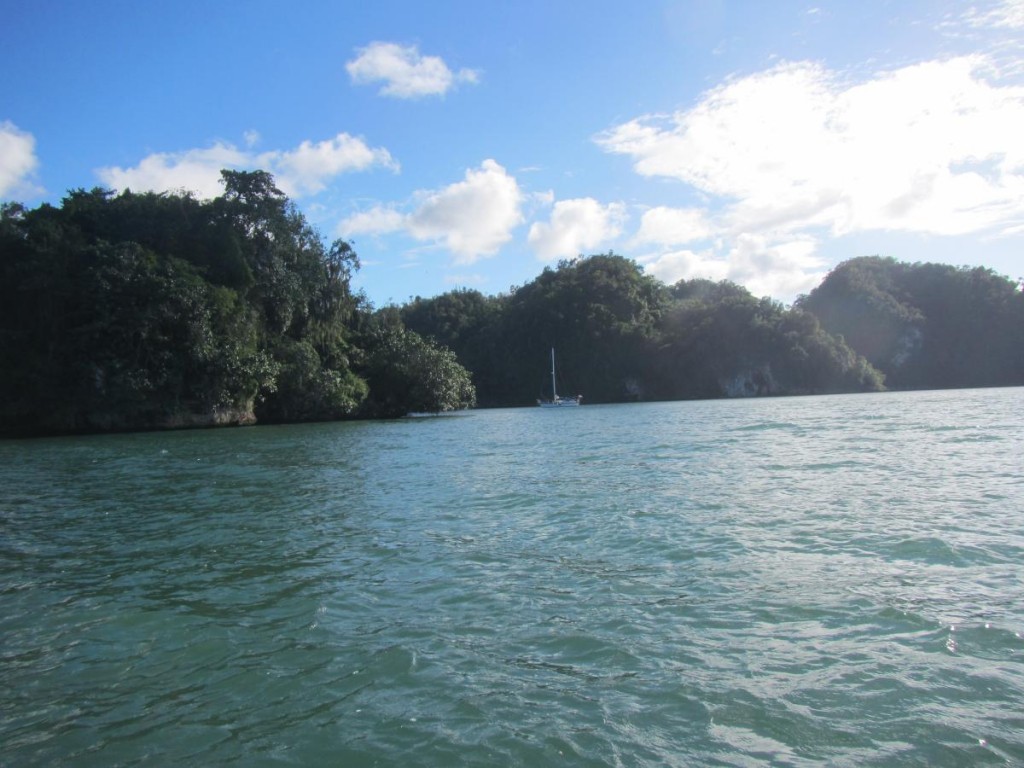
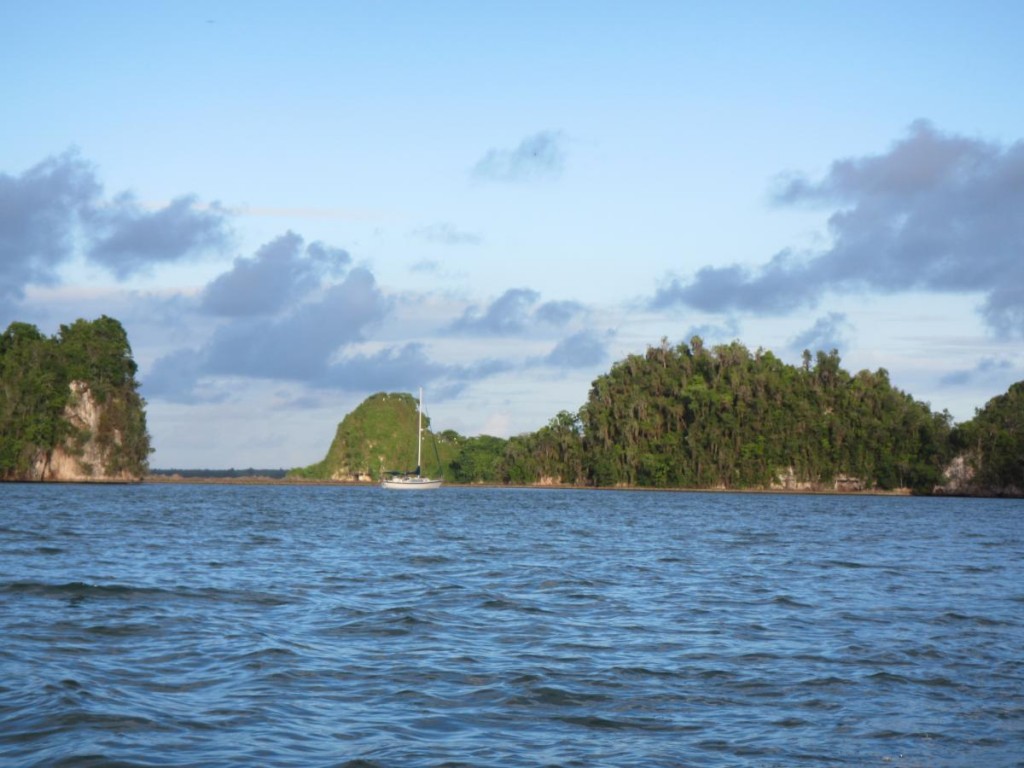
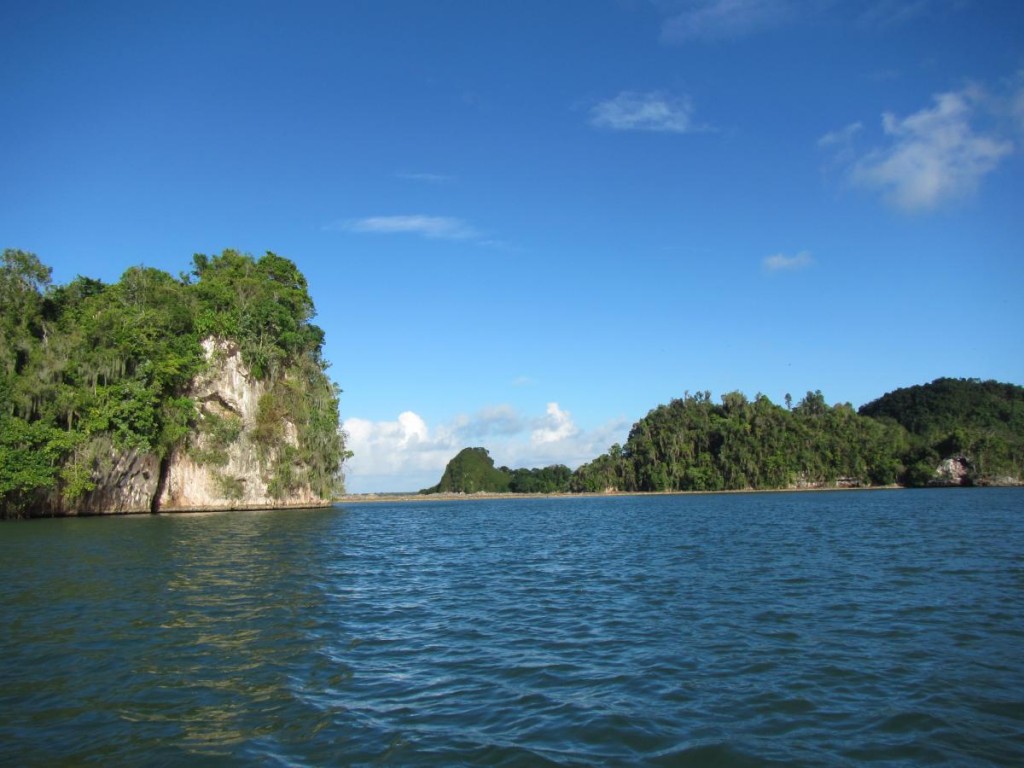
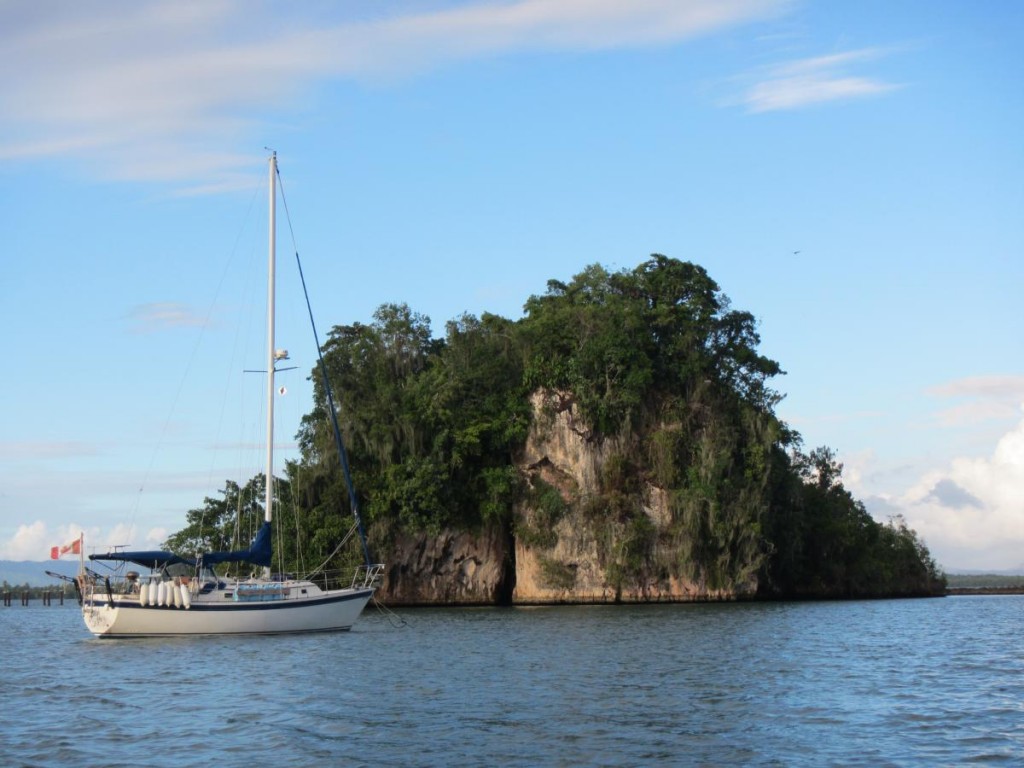
We got up on February 1st – which incidentally, marks the midway point of our adventure – and explored the park in the dinghy (which, if you ask me, is the only way to see this place).
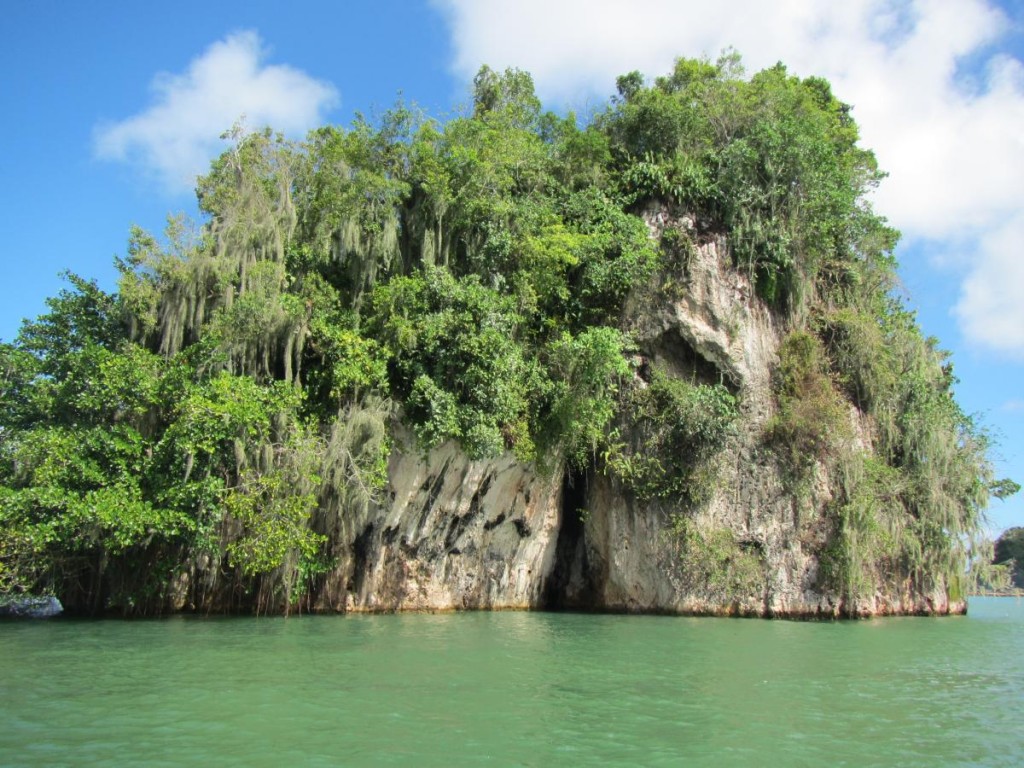
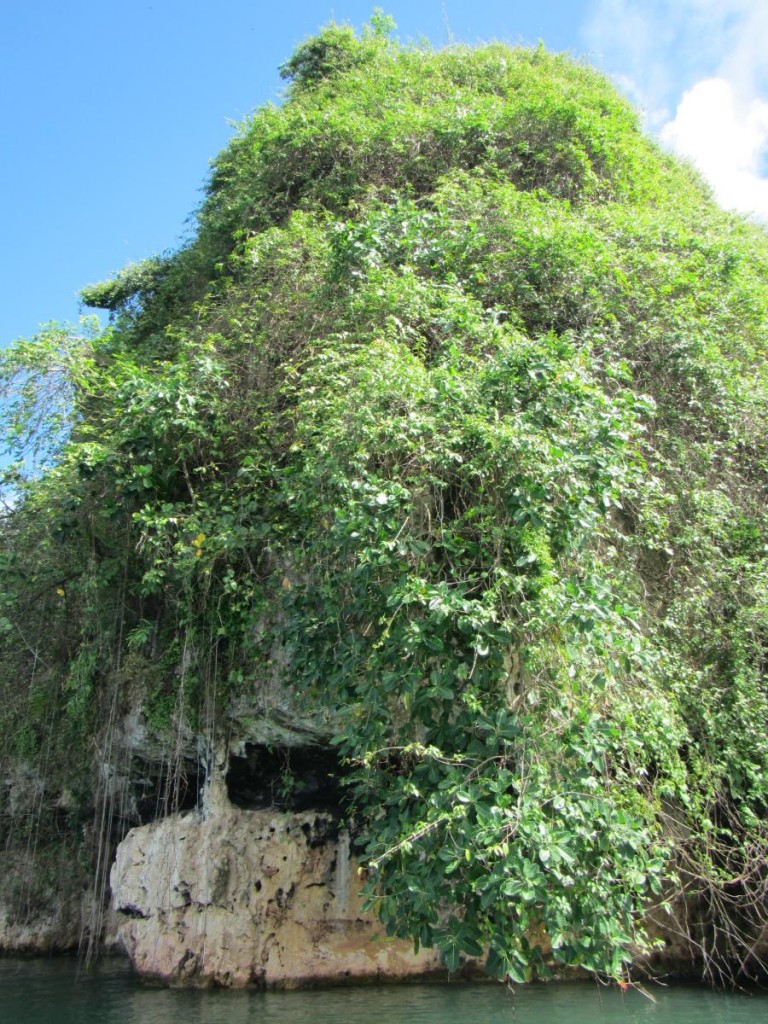
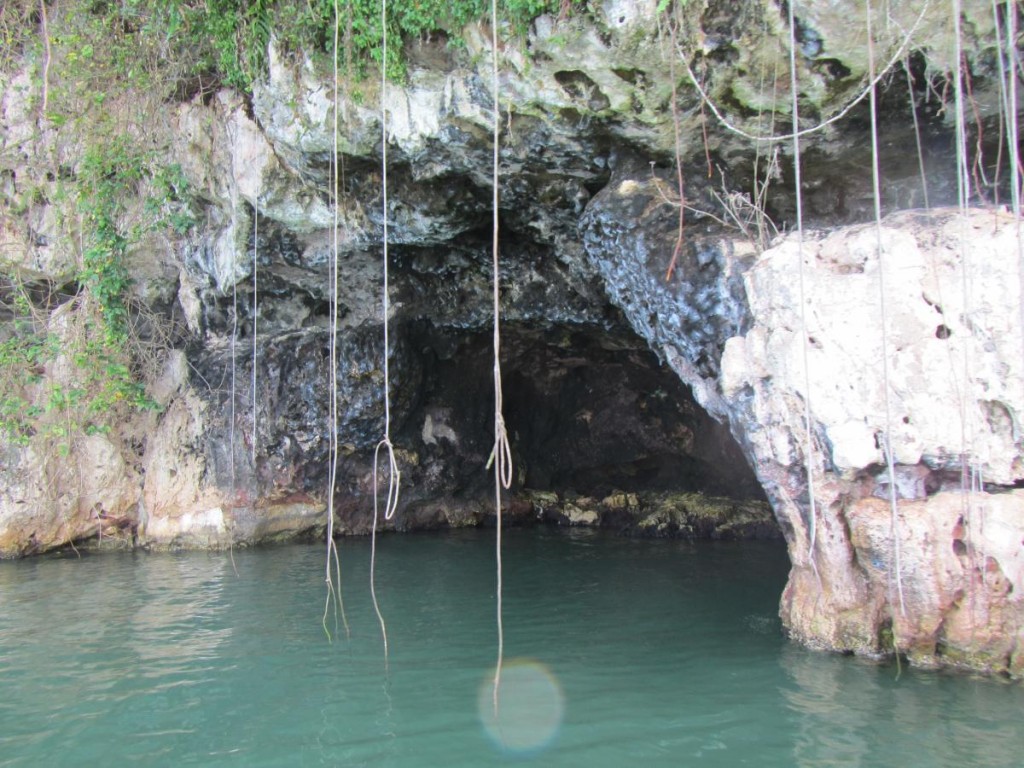
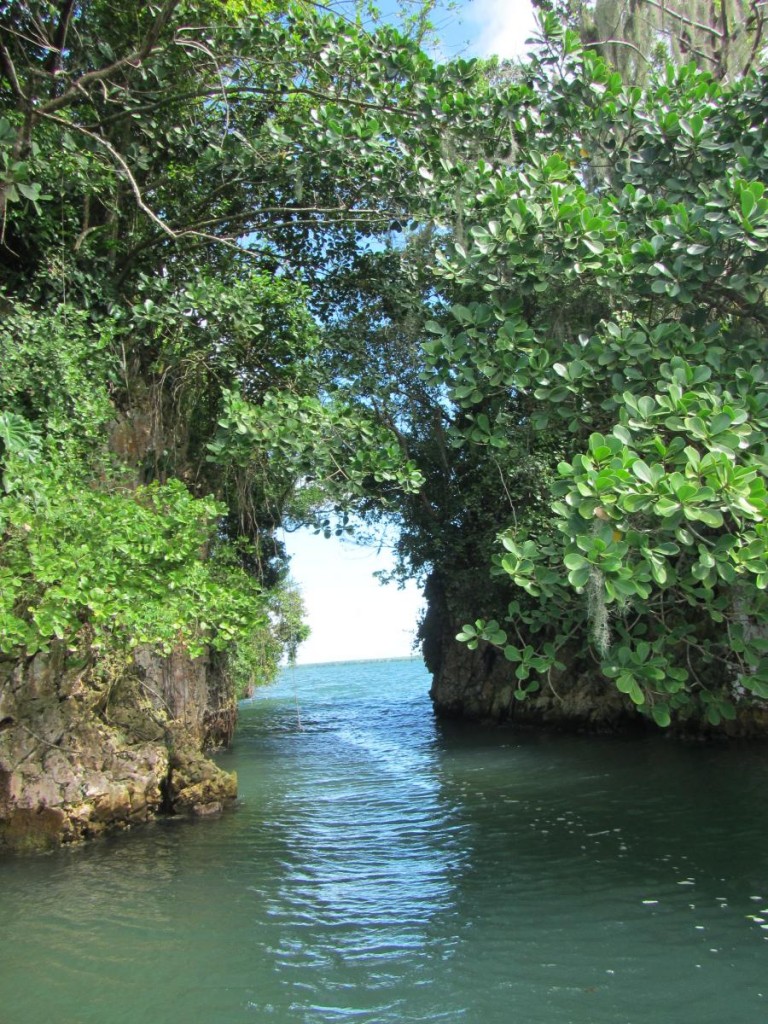
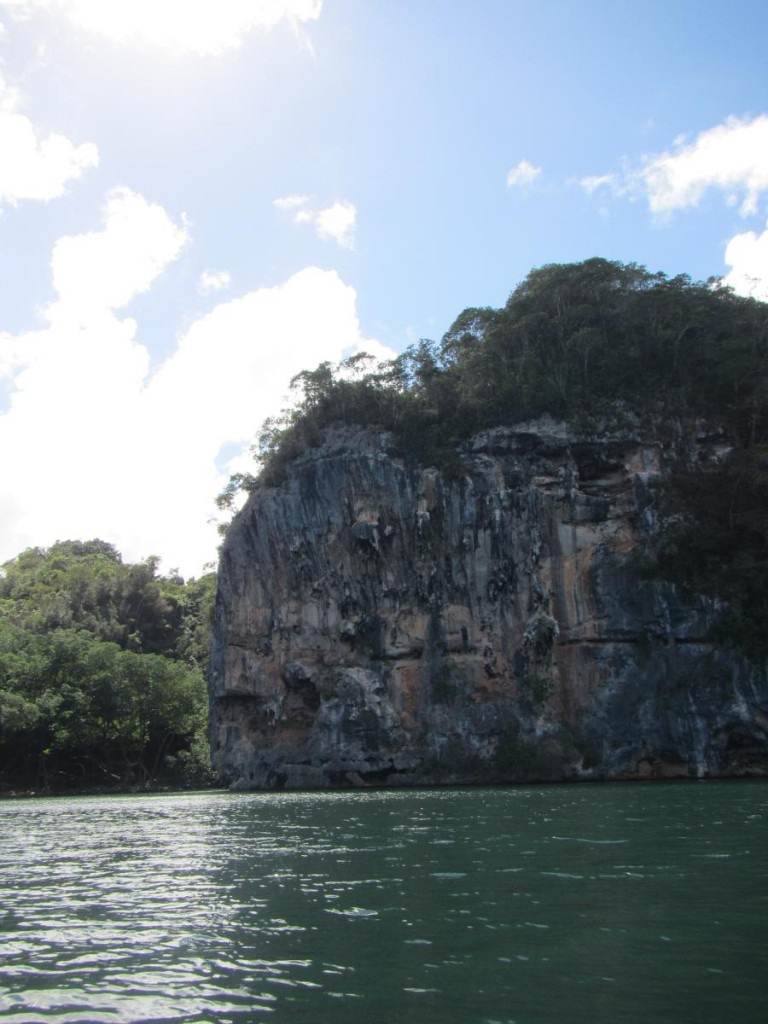
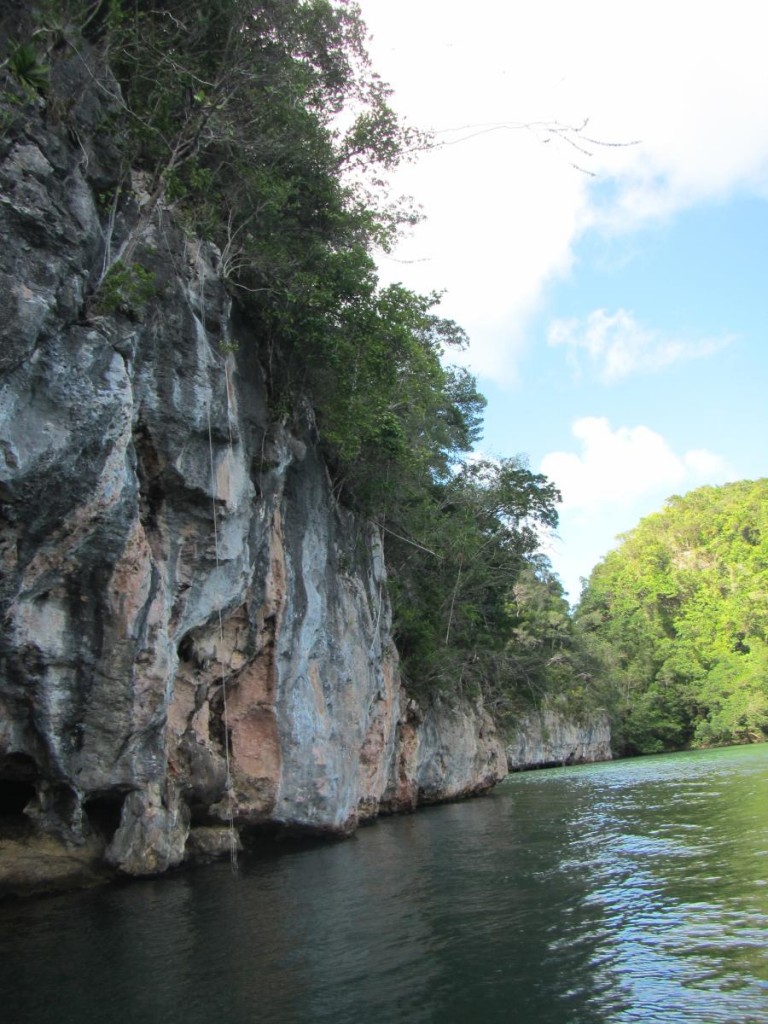
We tied up at the dock near the Ranger’s station, paid the 100 pesos/per person entrance fee to the park, then toured the nearby caves (Cueva de la Arena).
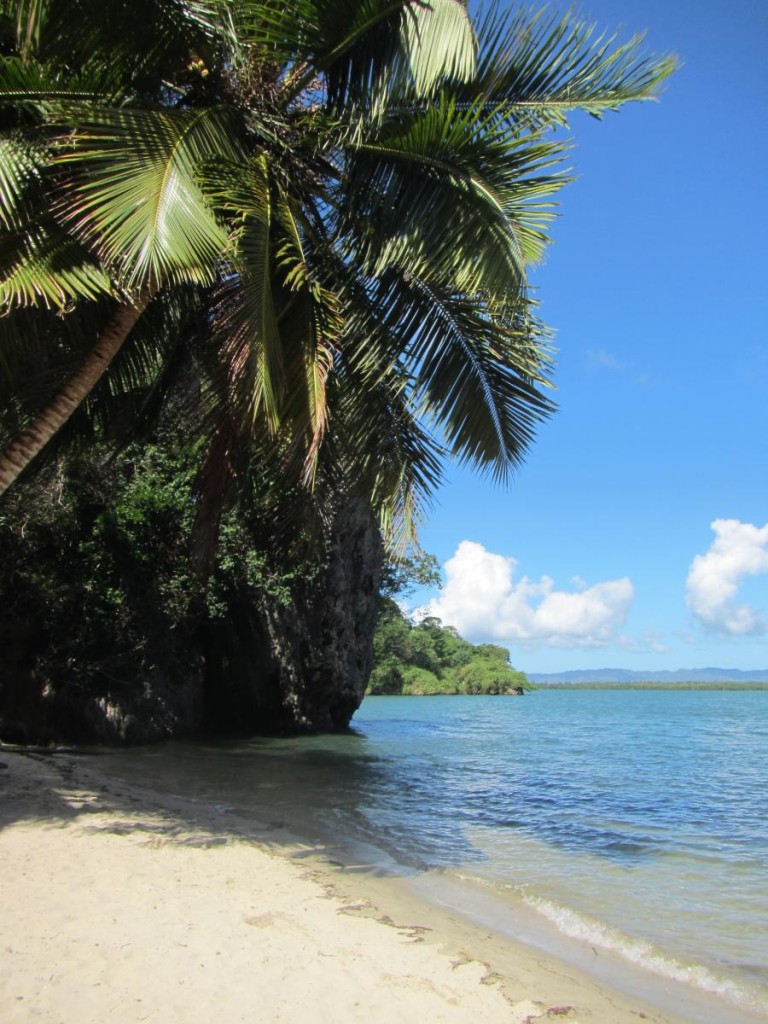
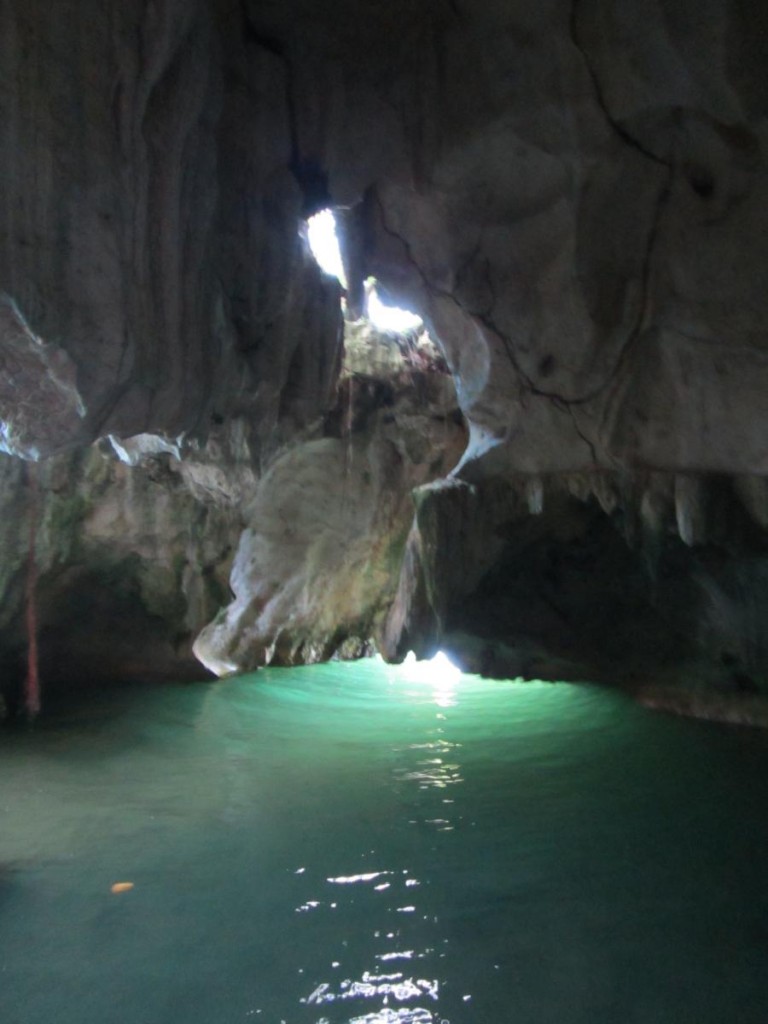
After touring Cueva de la Arena, we went in search of a mangrove-lined river that leads to the road to a very interesting “eco-lodge”, Paraiso Cano Hondo. It took us a while and a few wrong turns, but we eventually found it.
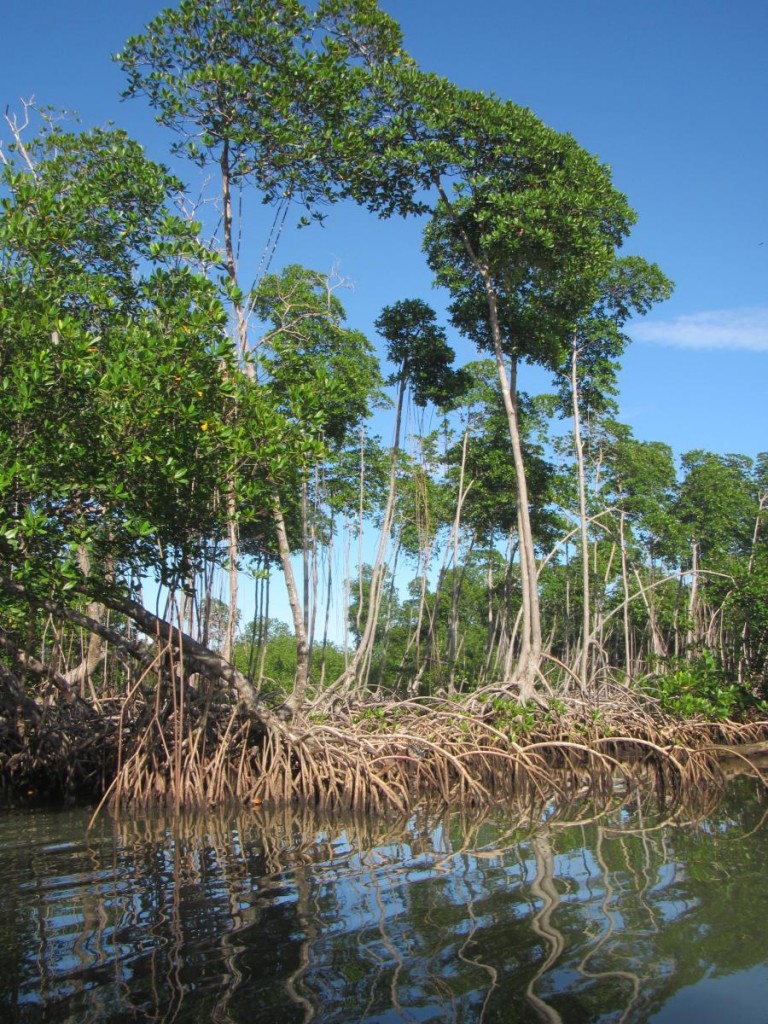
We motored slowly and enjoyed our picnic lunch along the way.
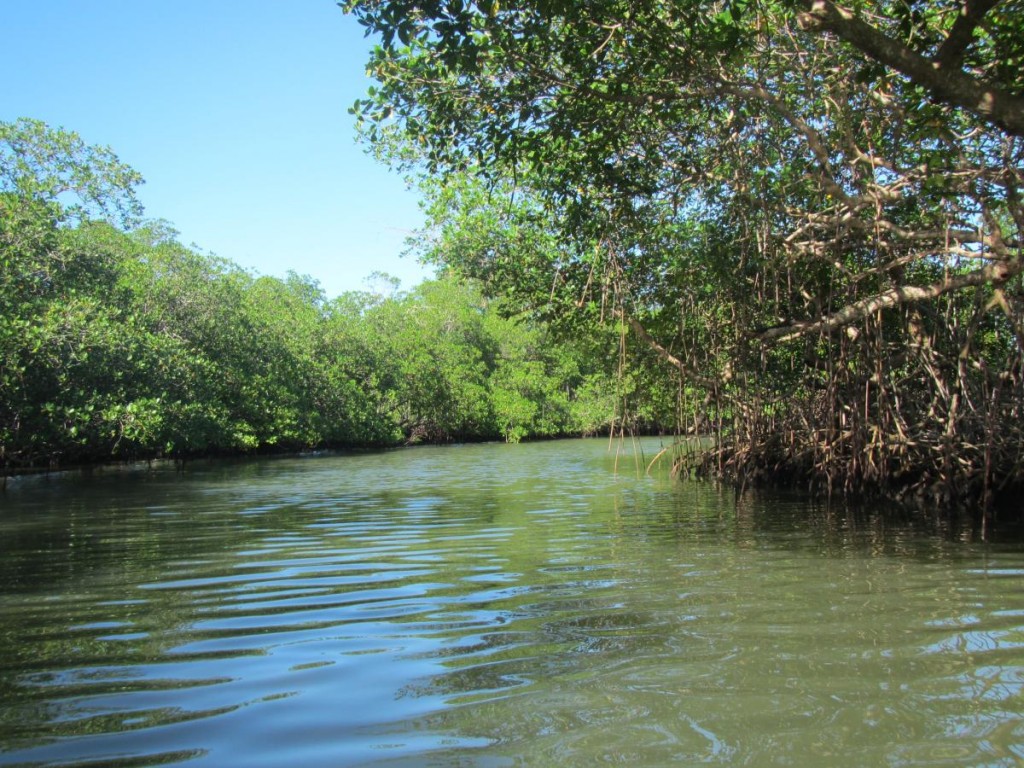
Here’s some video of the dinghy ride through the mangroves.
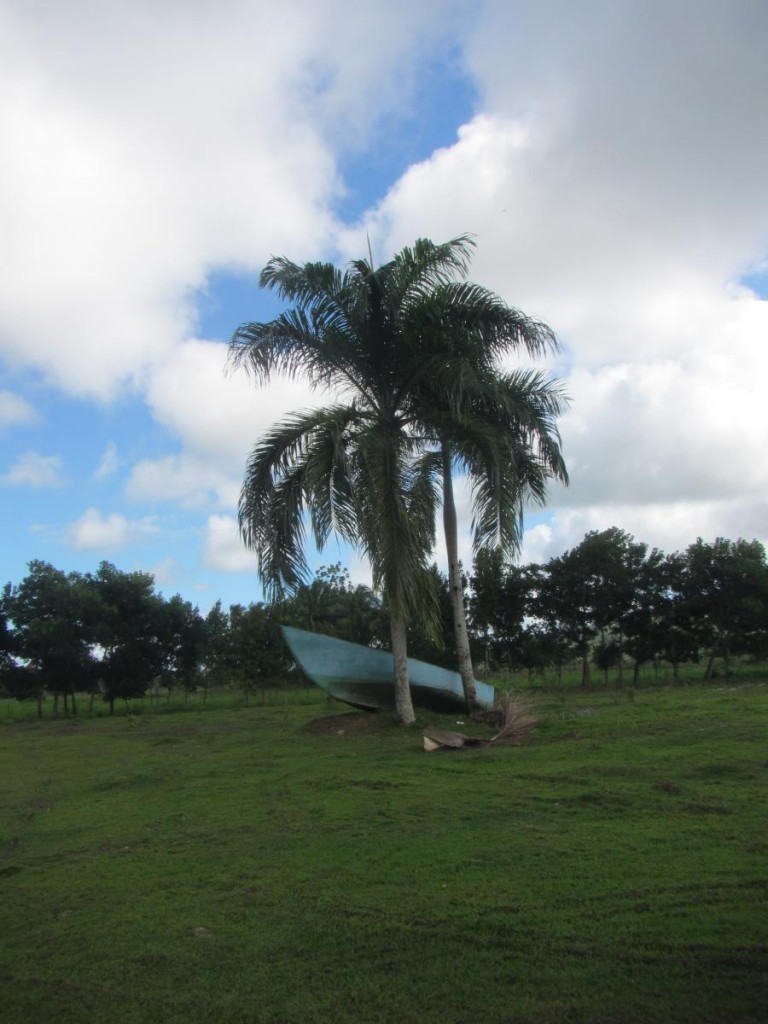
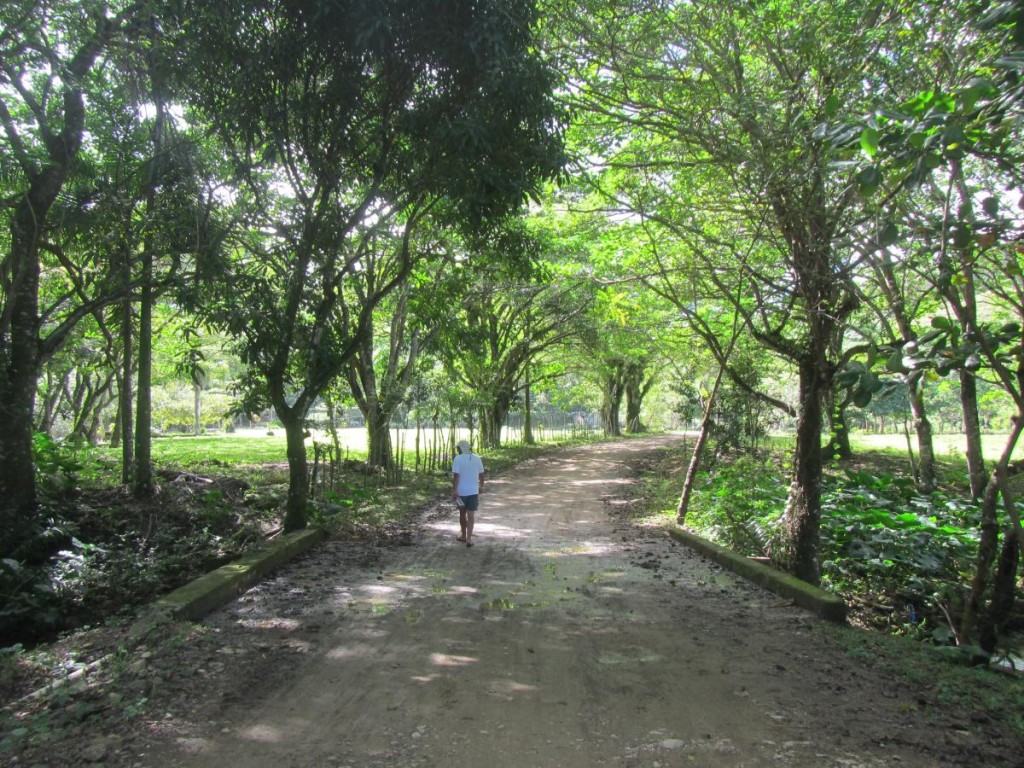
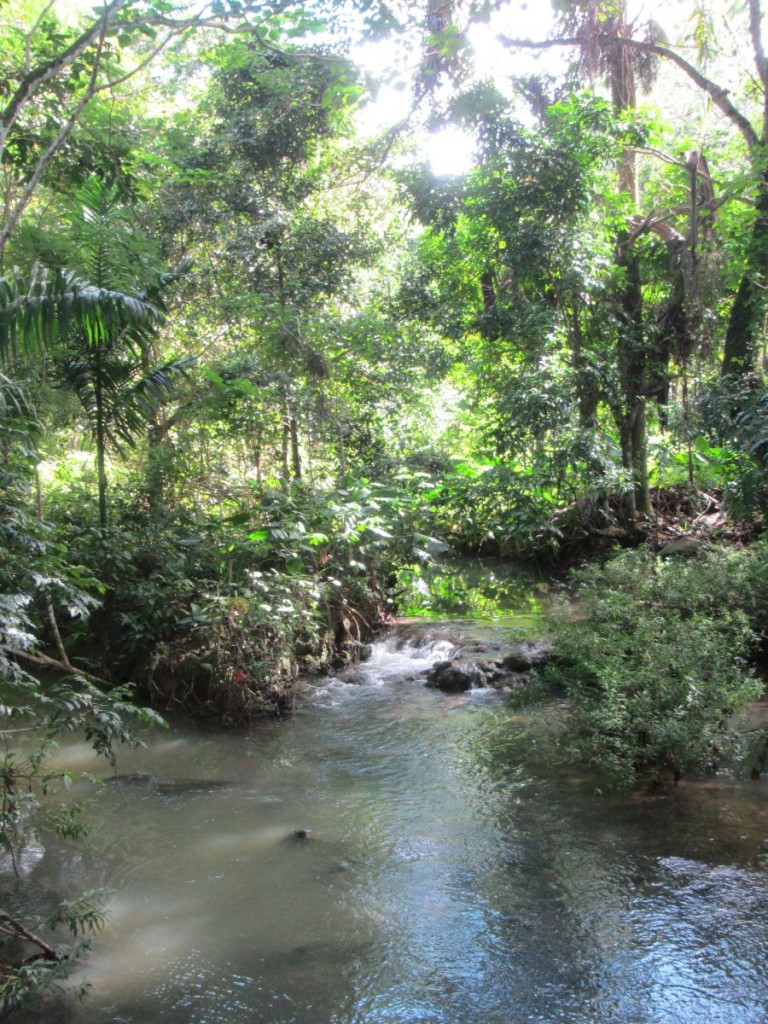
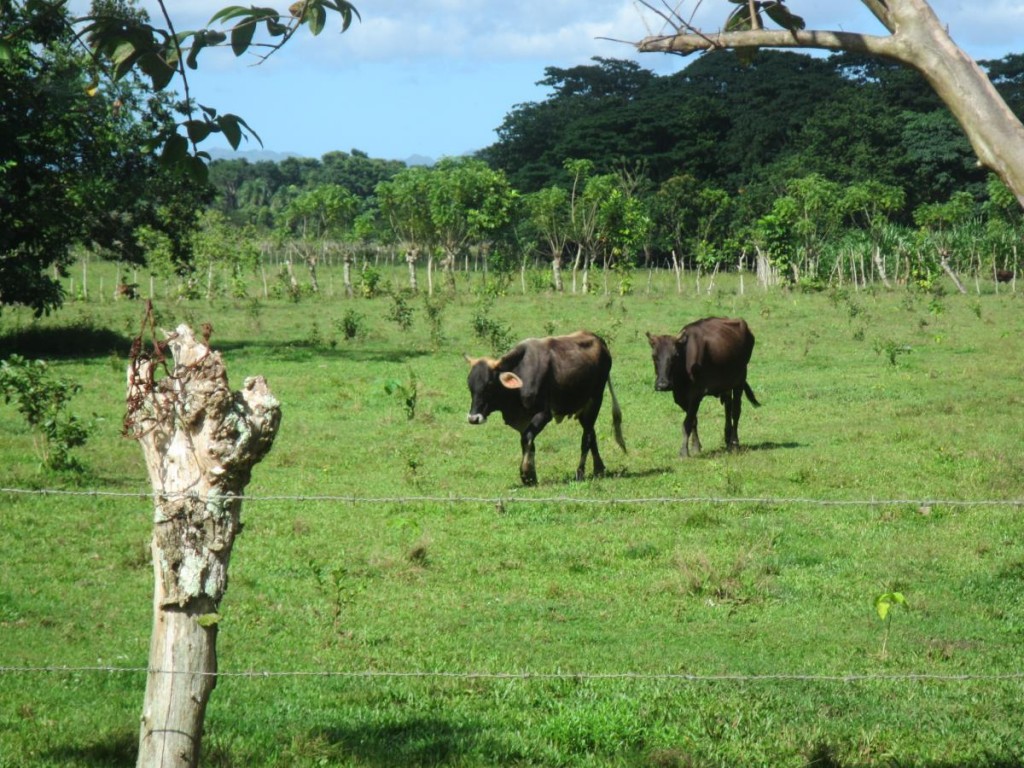
The lodge and its network of ponds and waterfalls were pretty impressive.
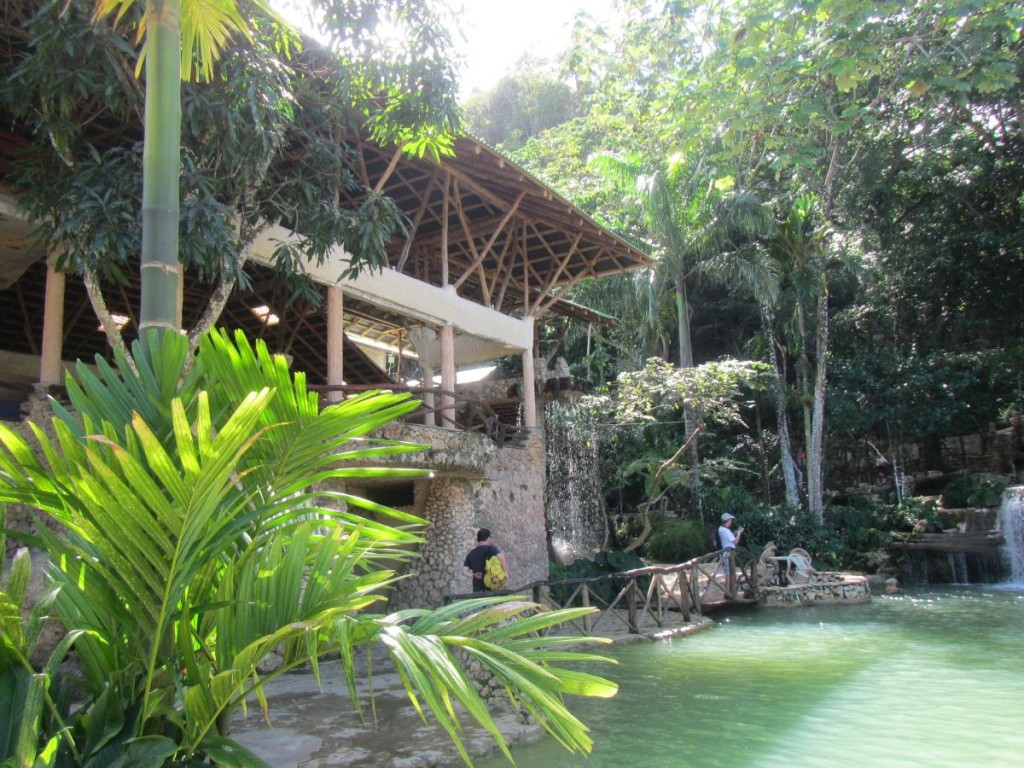
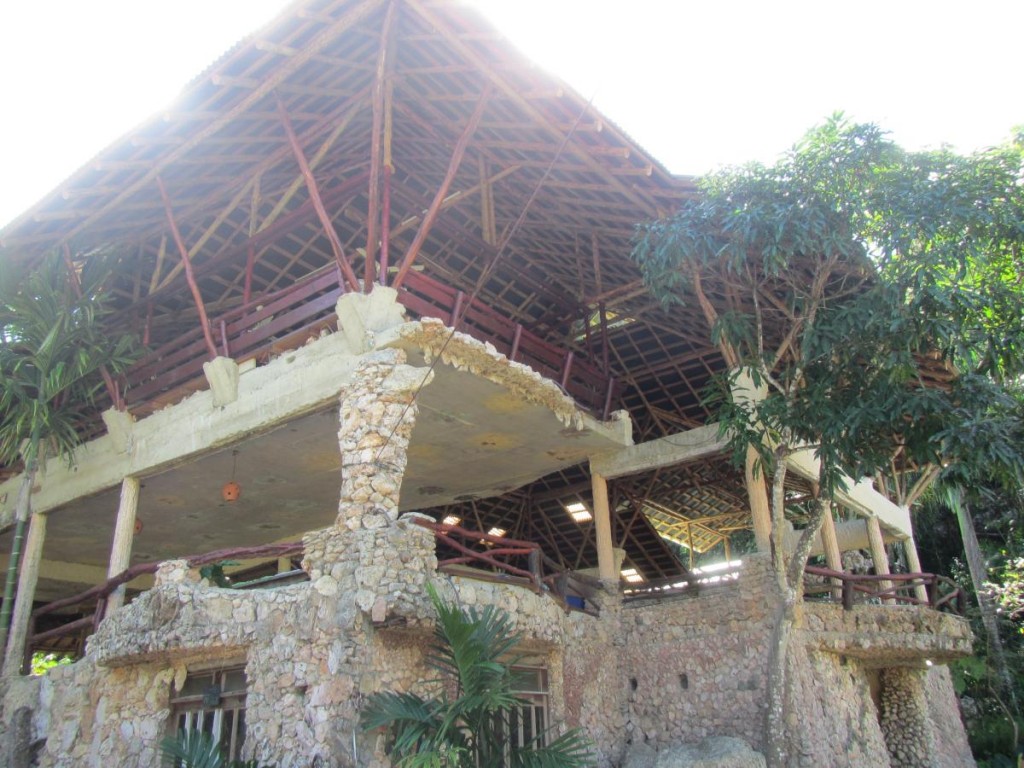
Waterfalls and pools have been created in the stretch of the Jivales River that runs through the property.
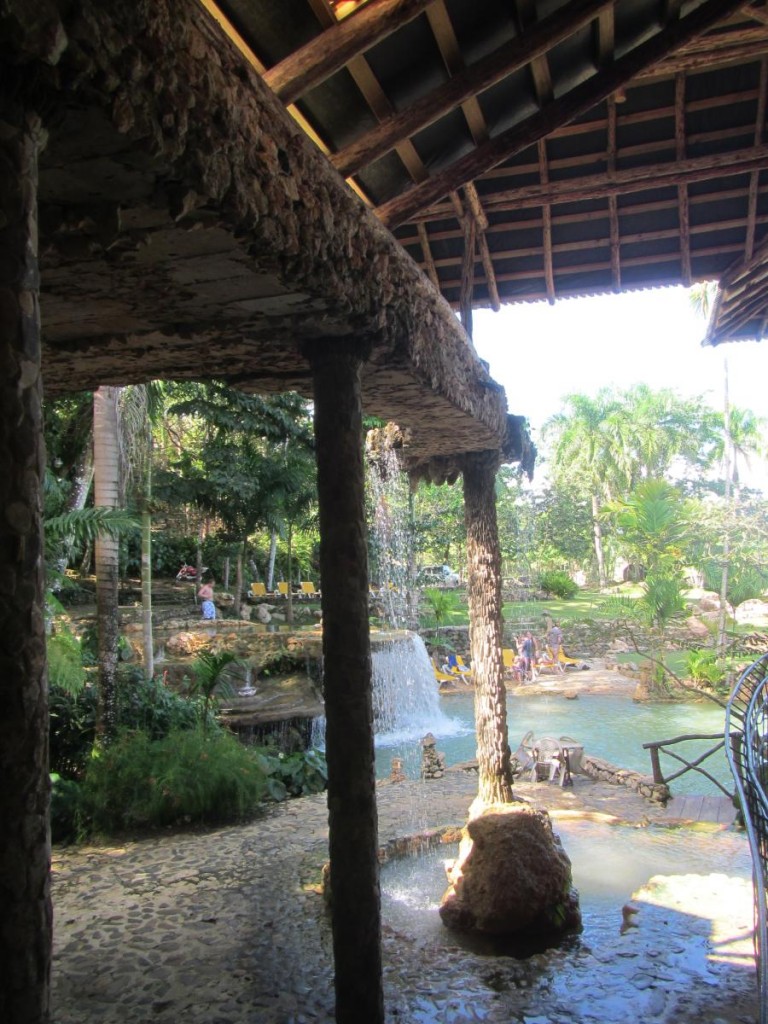
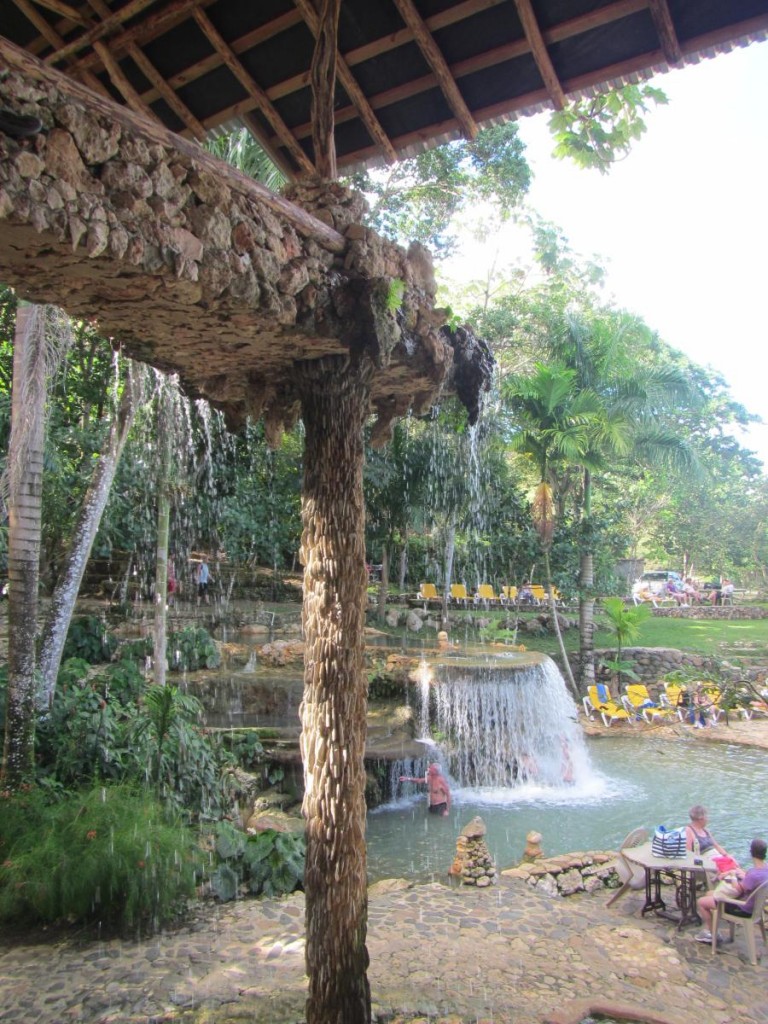
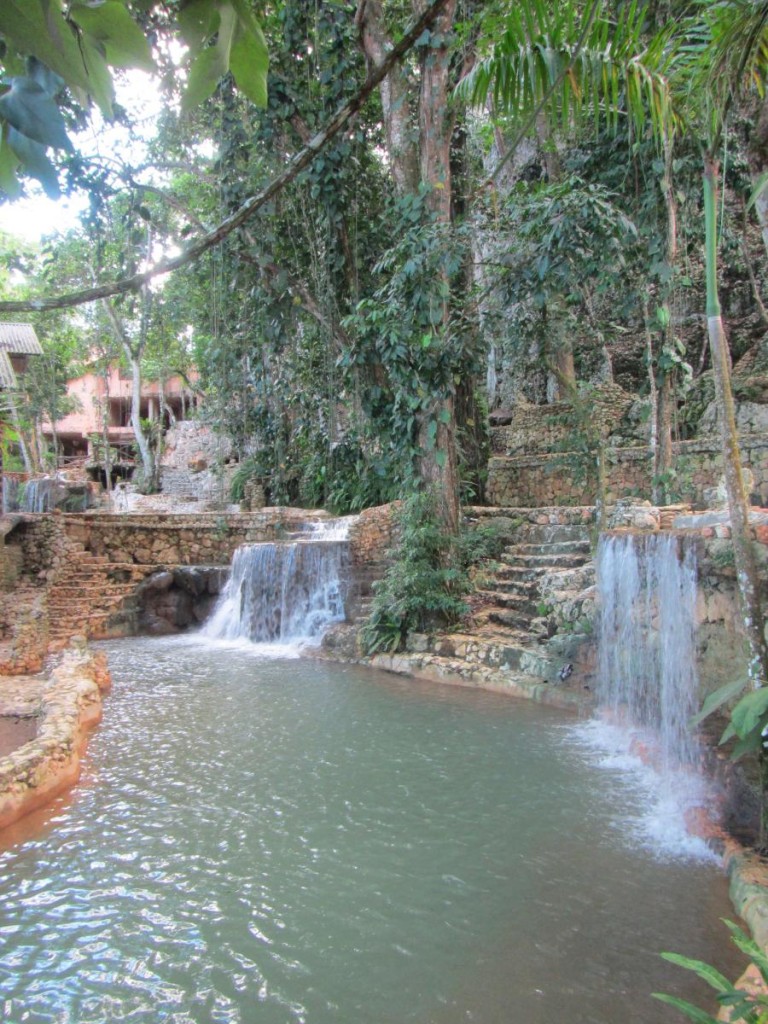
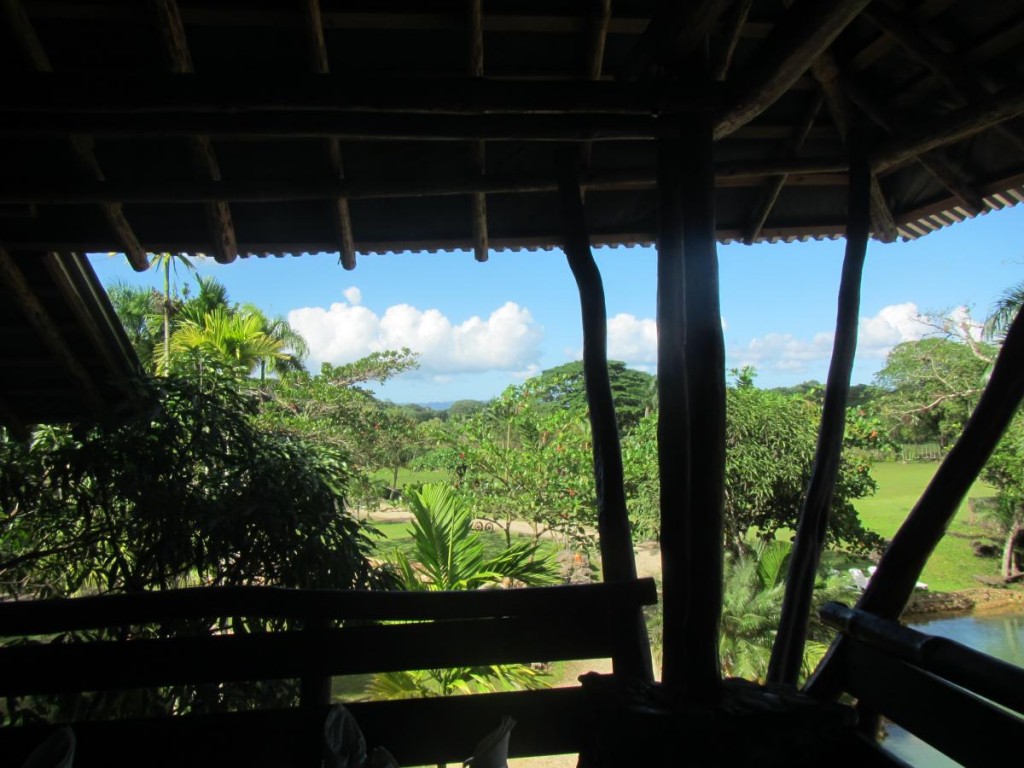
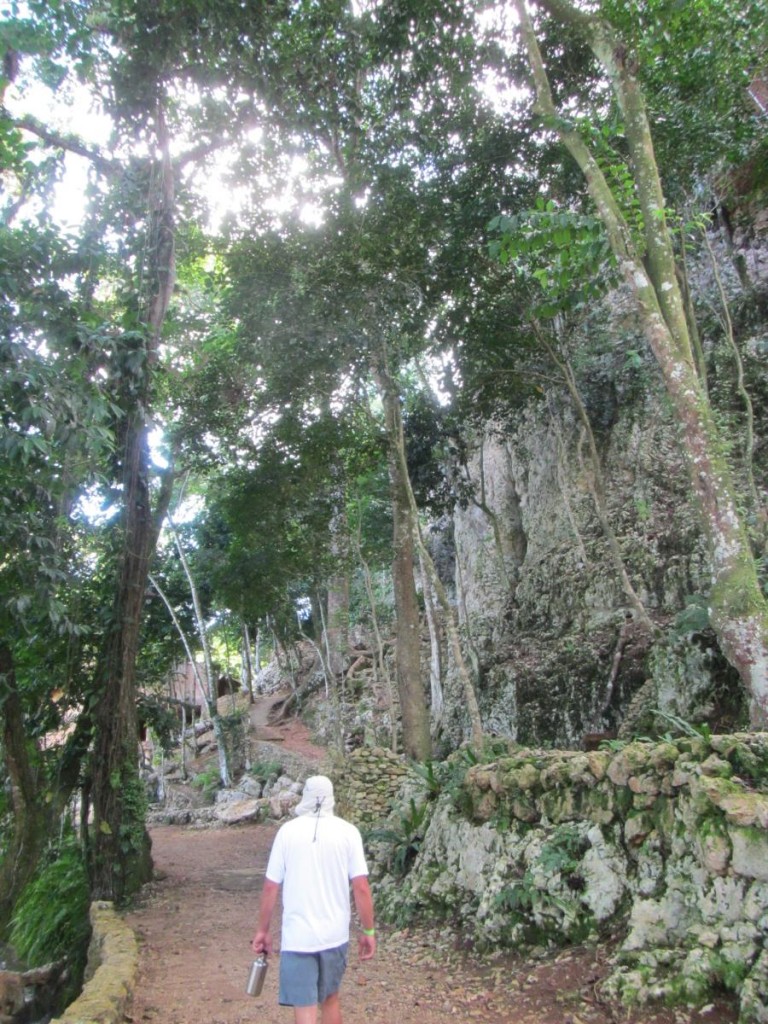
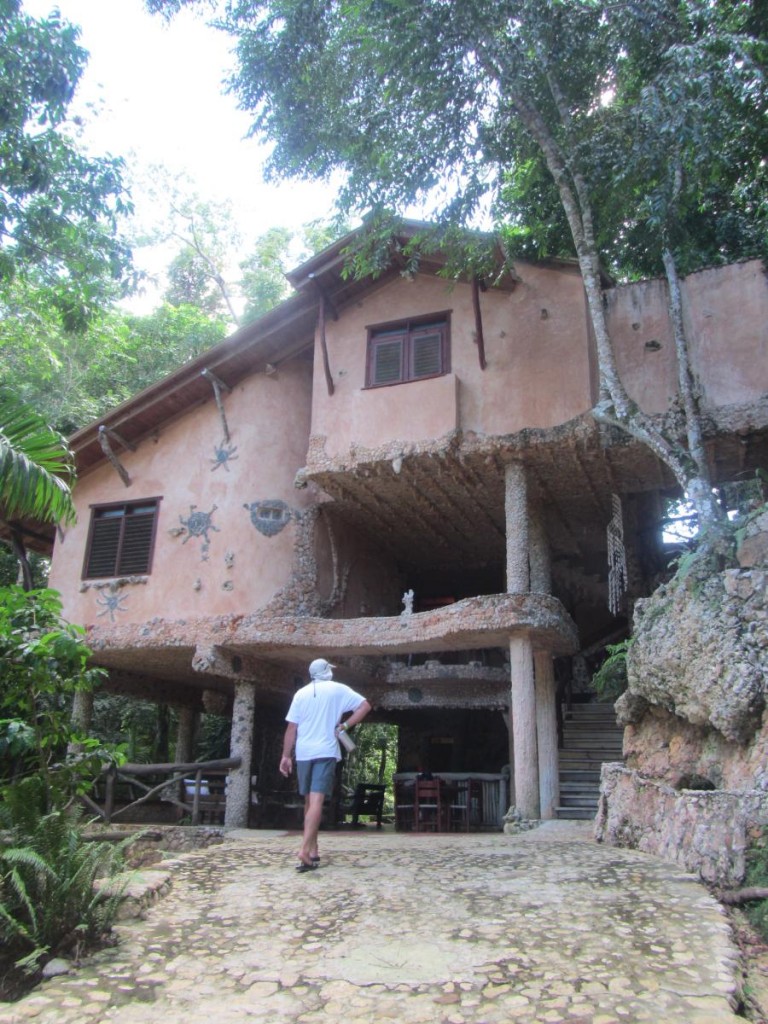
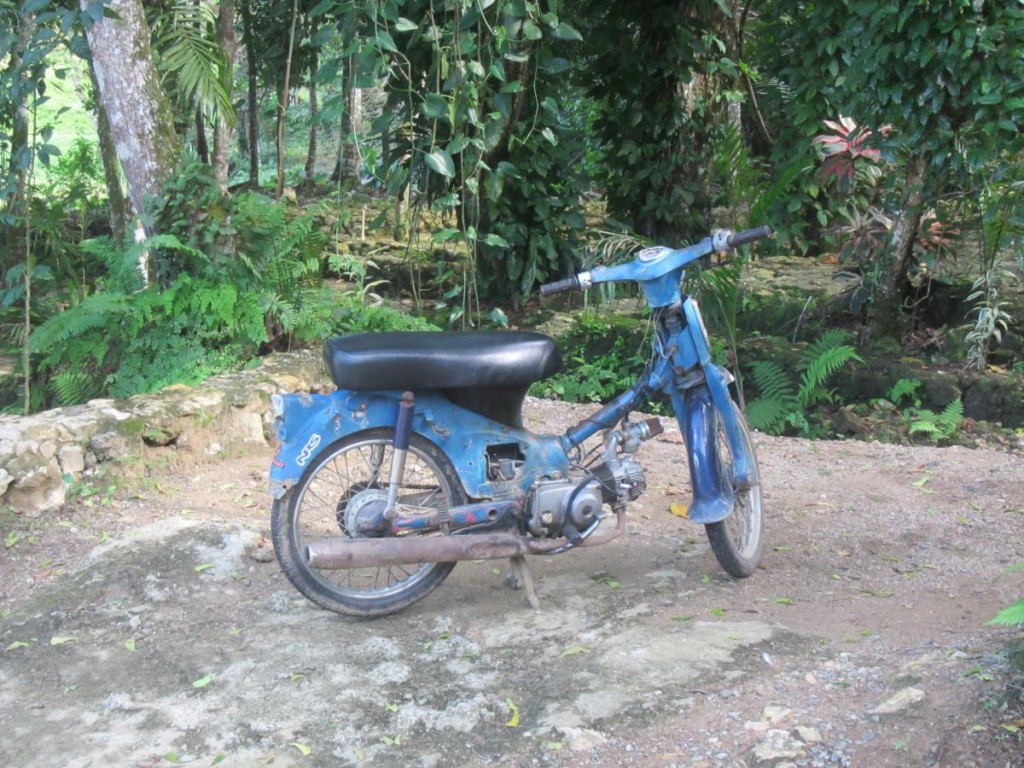
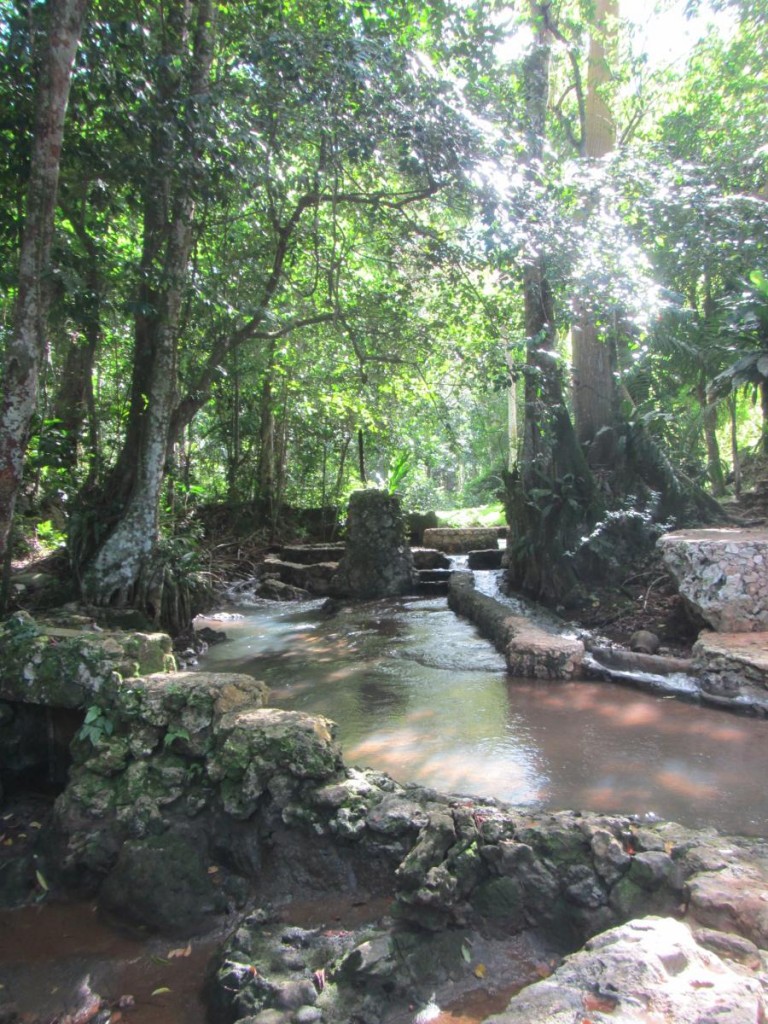
We left the lodge and made our way back through the mangroves, out into Bahia de San Lorenzo and on to the Cueva de la Línea, close to our anchorage (but which we had previously avoided because there was a tourist boat docked there).
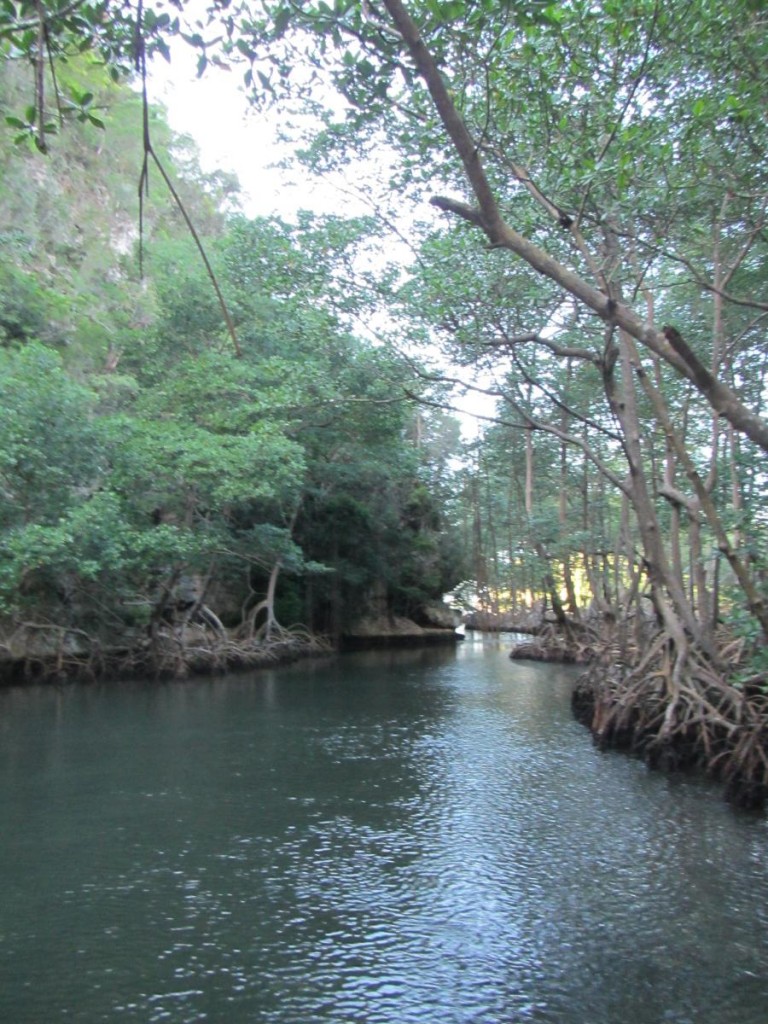
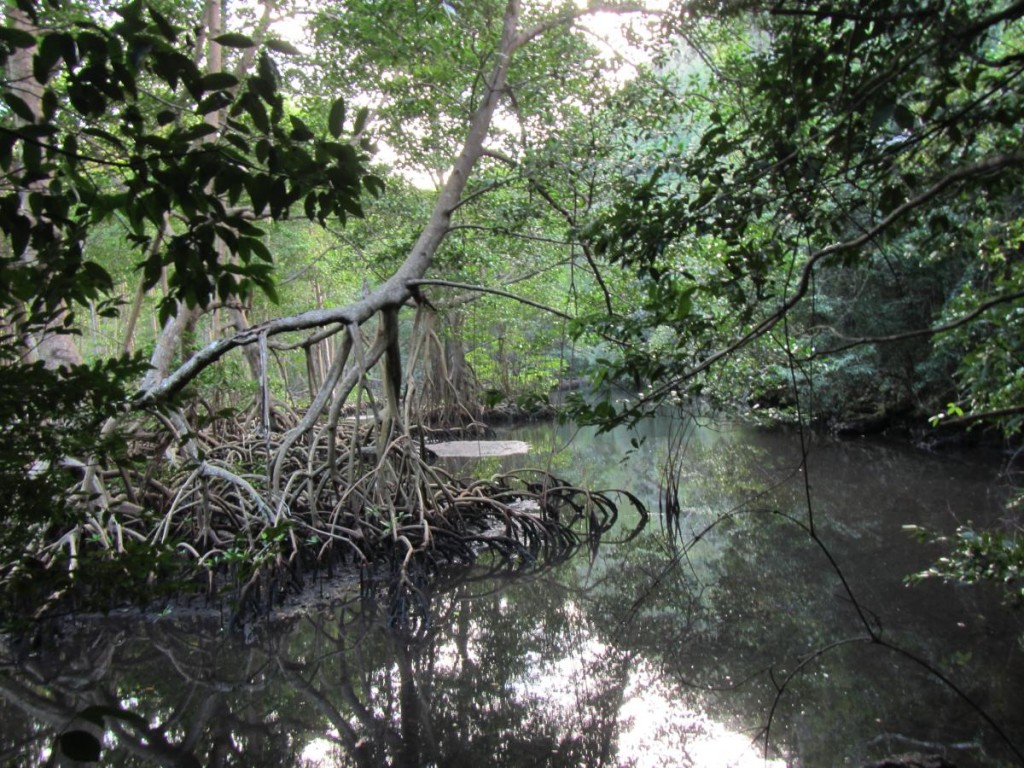
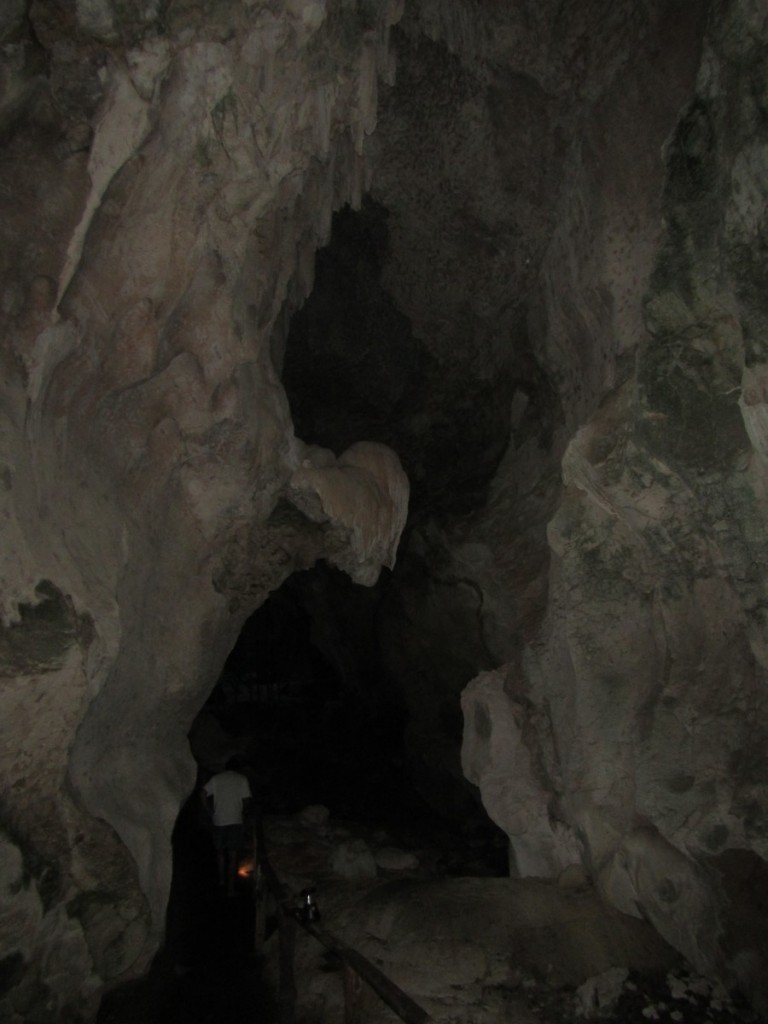
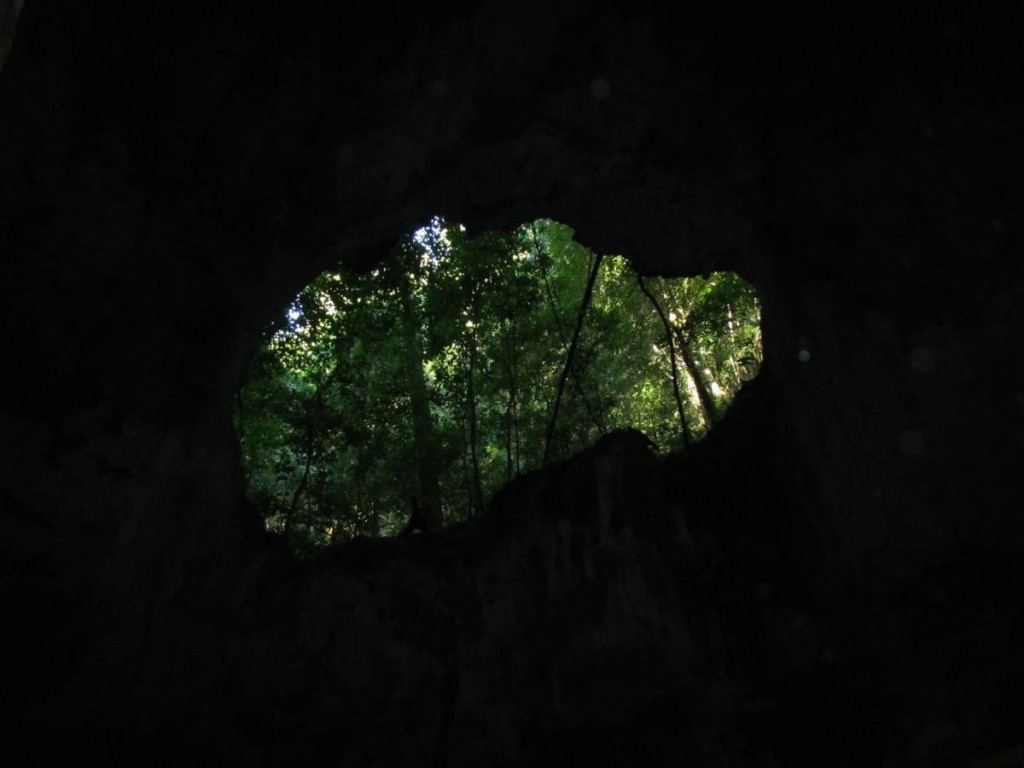
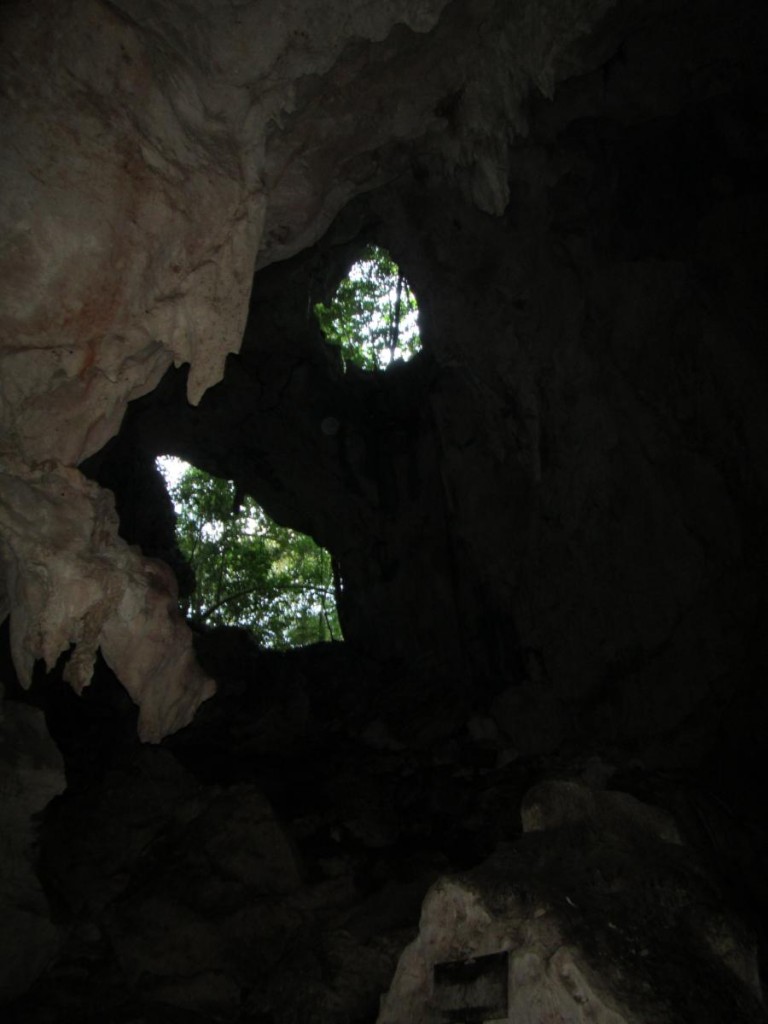
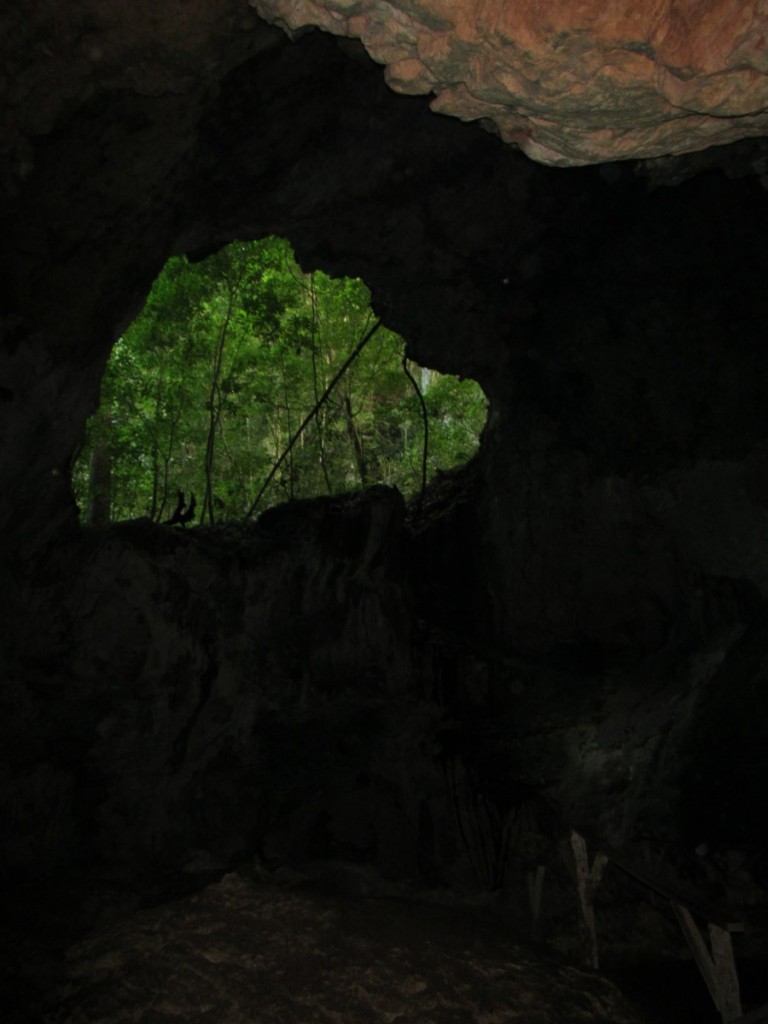
Cueva de la Línea is also known as “The Temple” due to the large number of pictographs and petroglyphs left by the Tainos inhabitants hundreds of years ago.
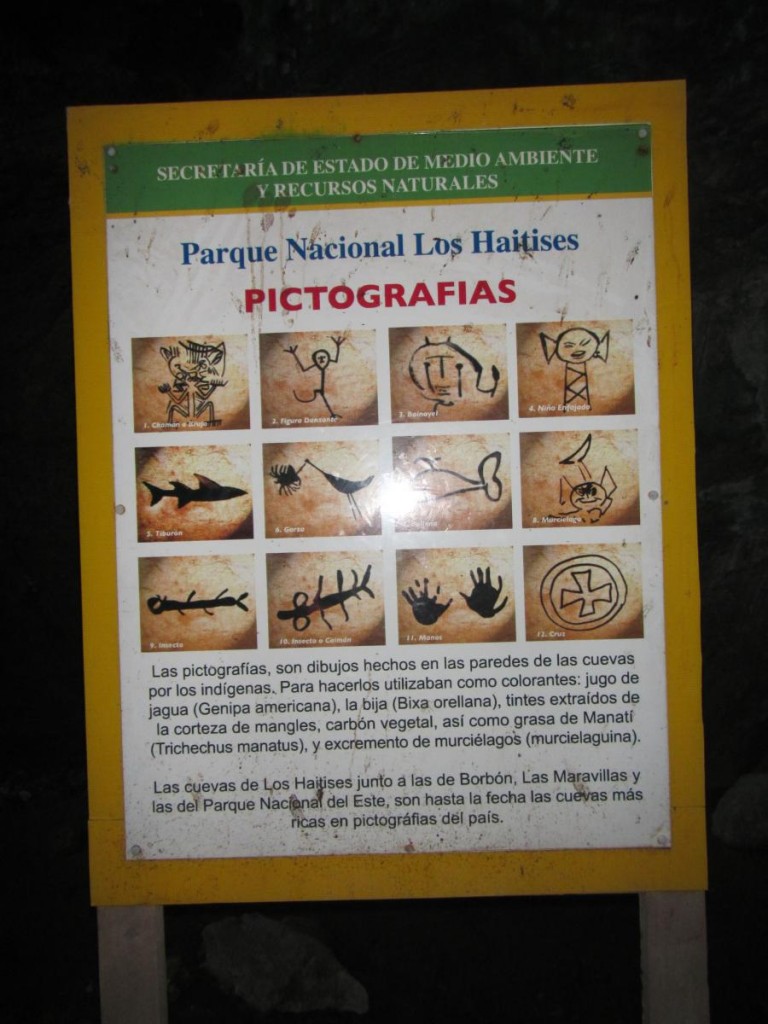
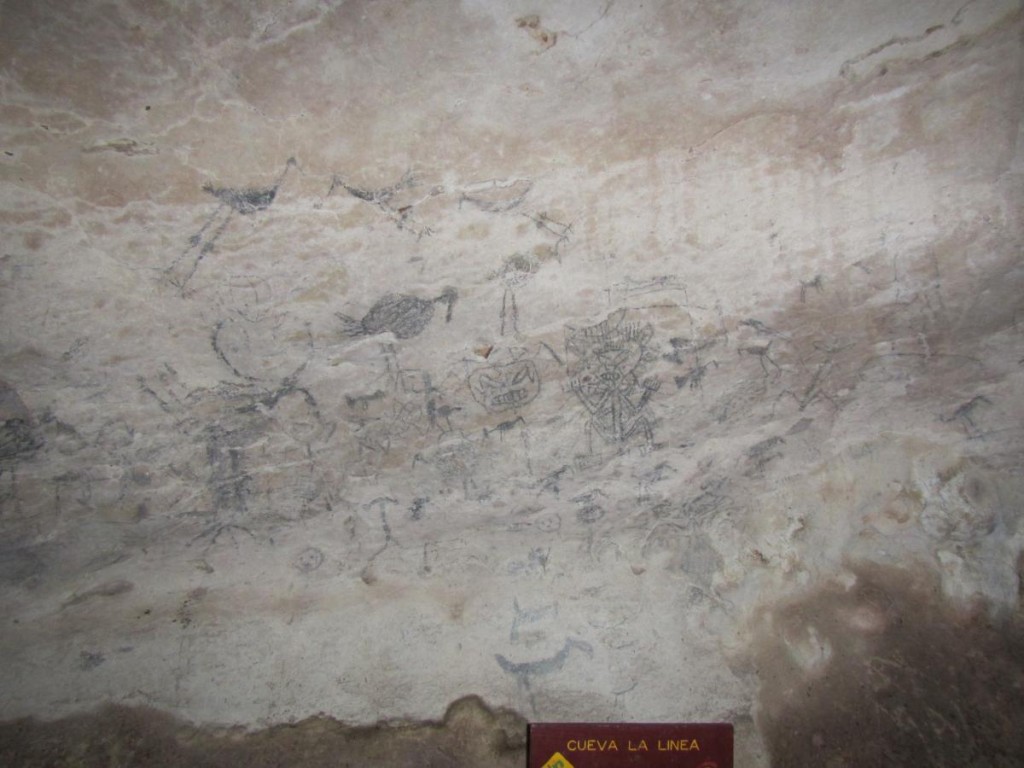
By now the bugs were coming out so we made a hasty retreat back to the dinghy. We weren’t quite ready to go back to the boat yet, though, so we motored around a bit in search of a hurricane hole mentioned to us by a Spanish captain we met. We weren’t sure if this was the place he meant, but it was deep enough for a boat our size to get into and anchor.
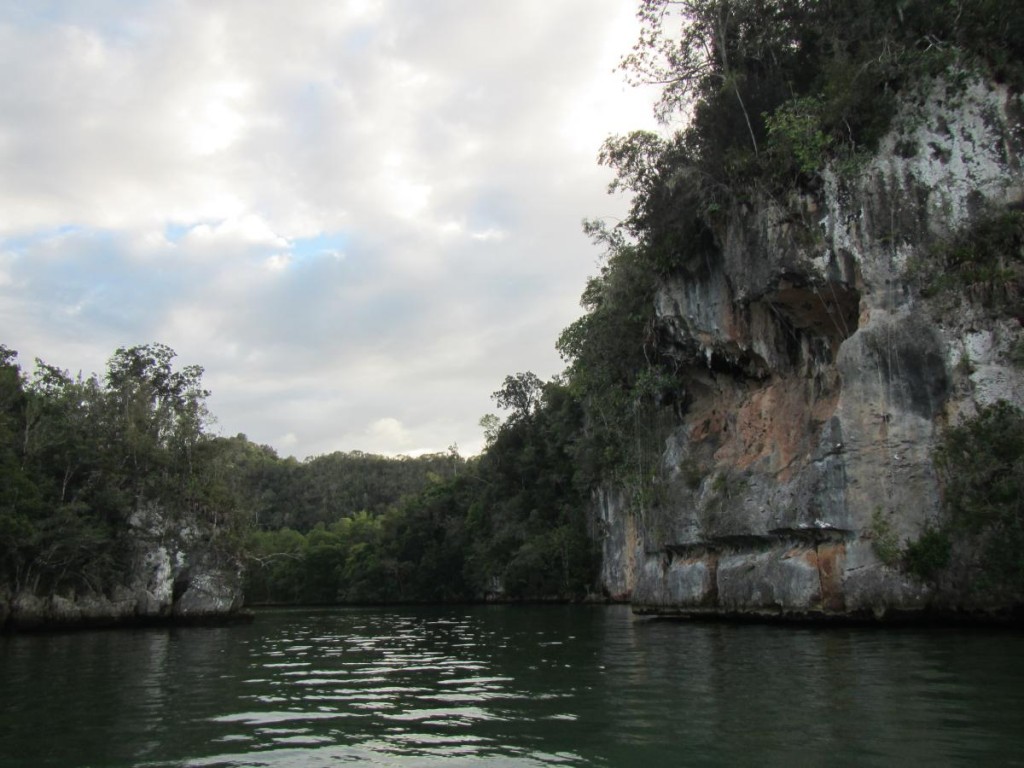
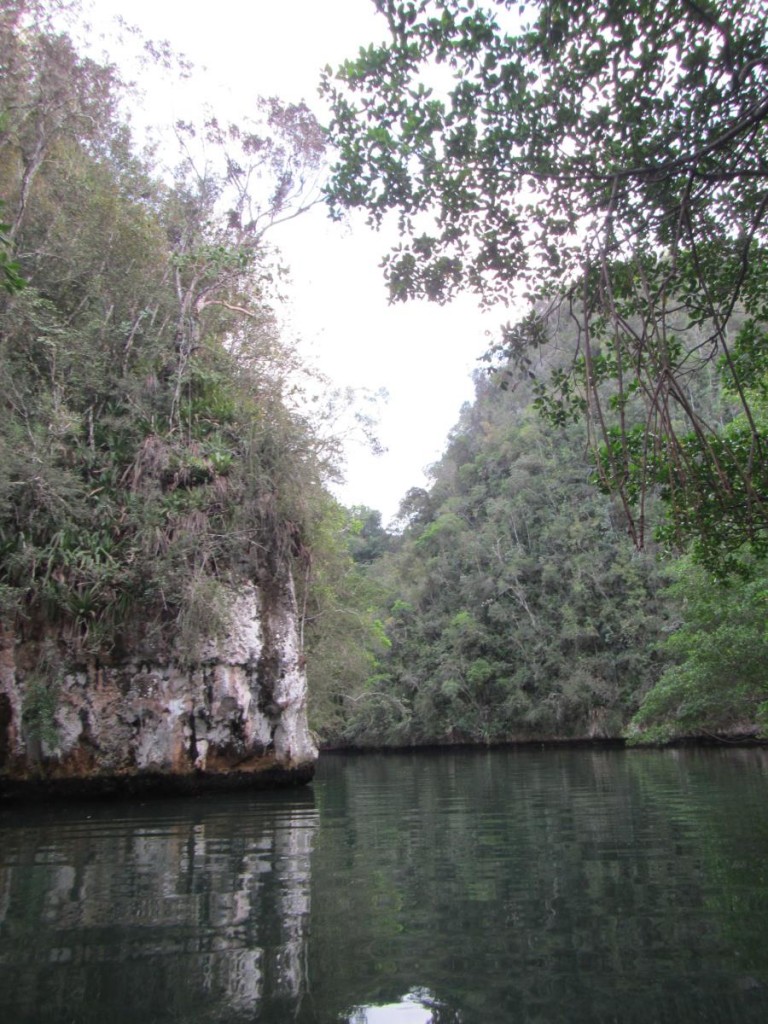
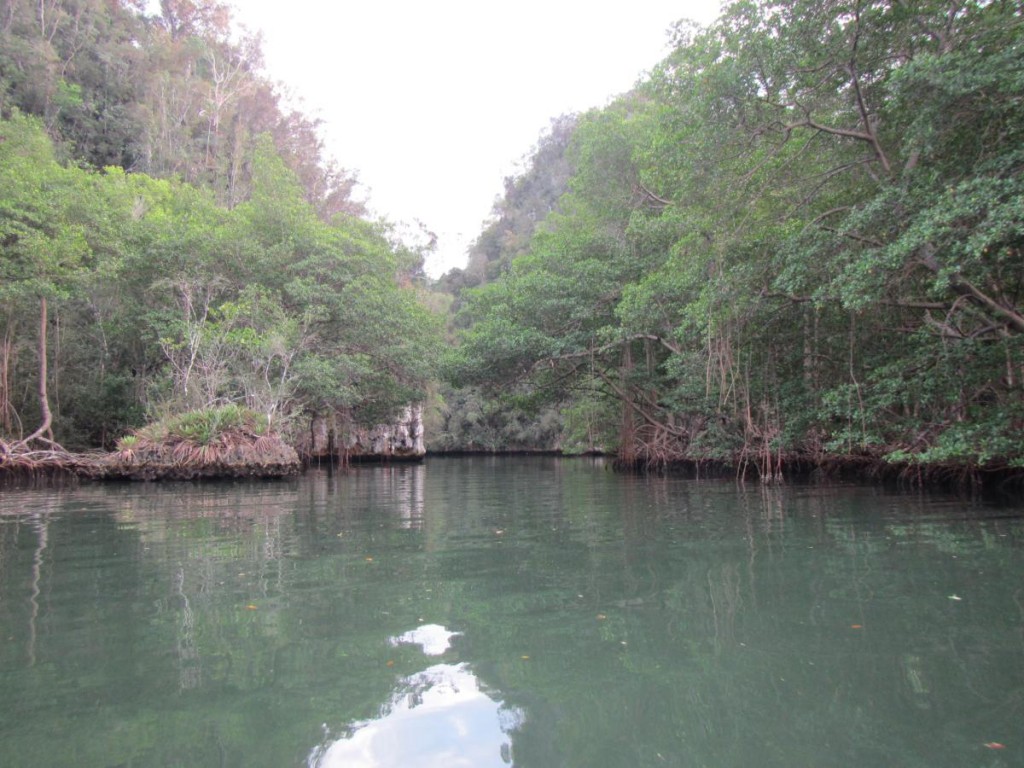
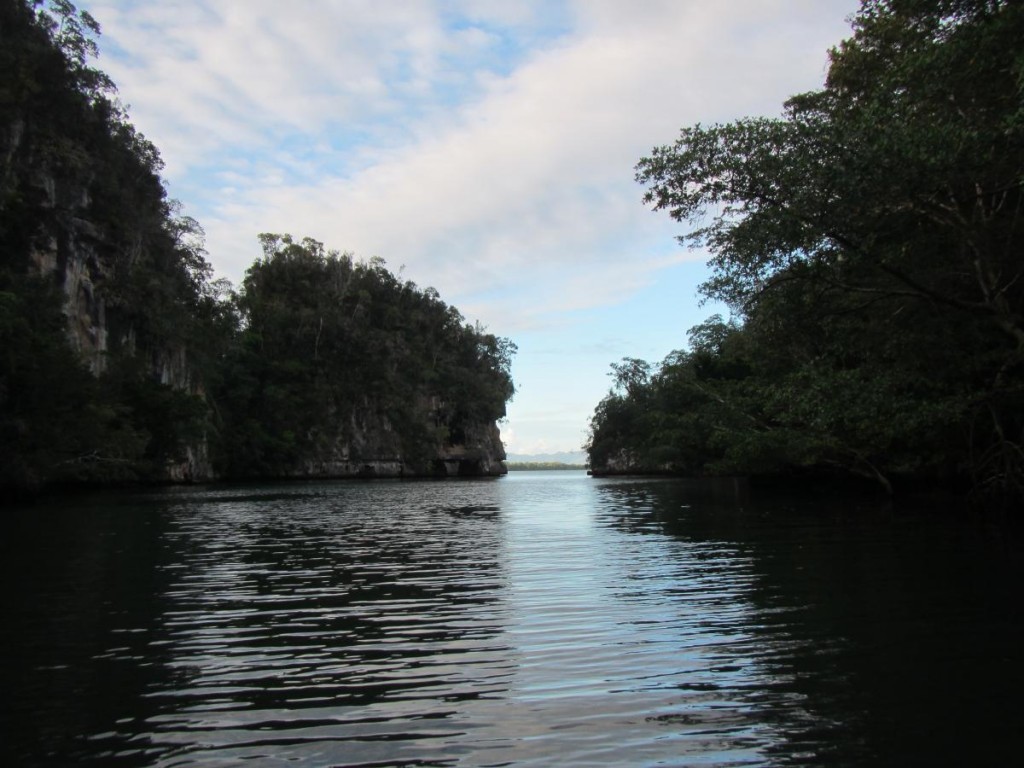
By now we’re getting pretty tired, and the bugs are chasing us around in the dinghy so we head back to the boat. Before I sign off, I’ll show you a little sampling of the wildlife – I can’t seem to get a good picture of a bird to save my iife (and there were PLENTY in the park). In fact, I was going to call this post “Holy Frigate!”, there were so many frigate birds around; and pelicans, and egrets, and a many, many we couldn’t identify.
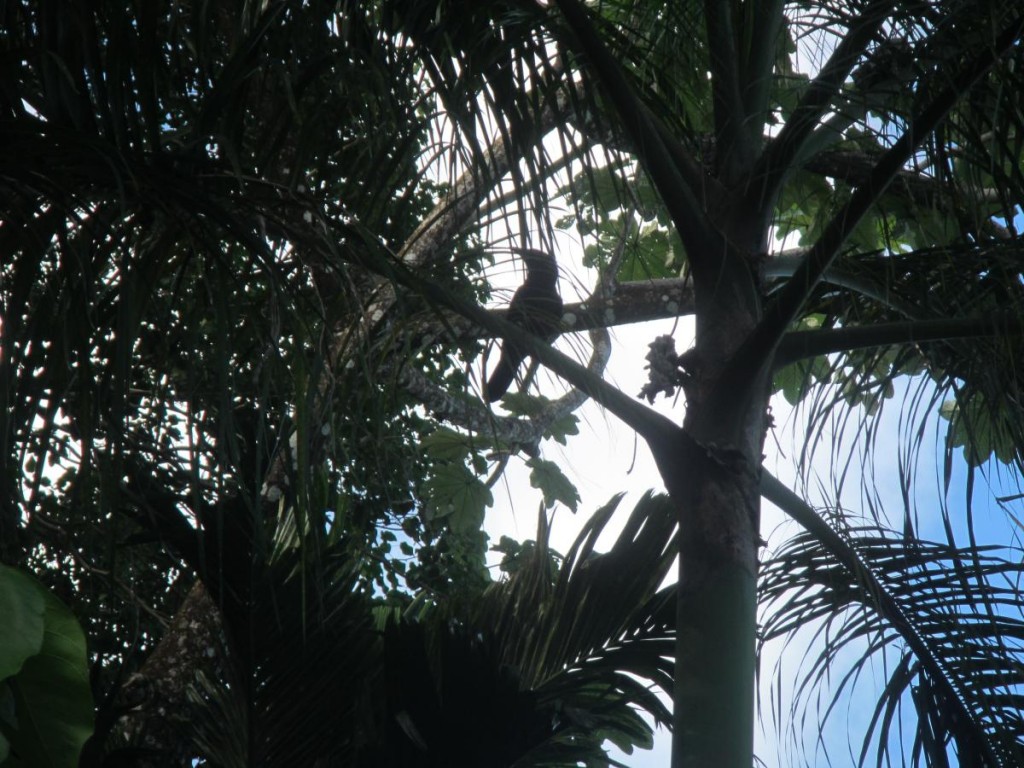
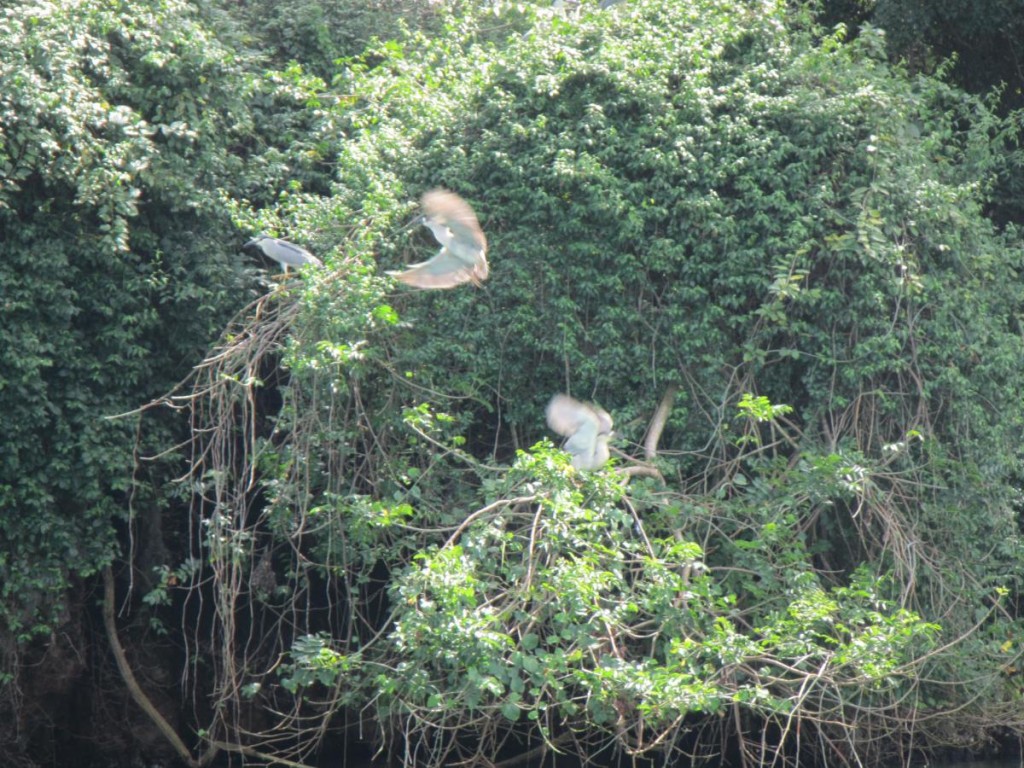
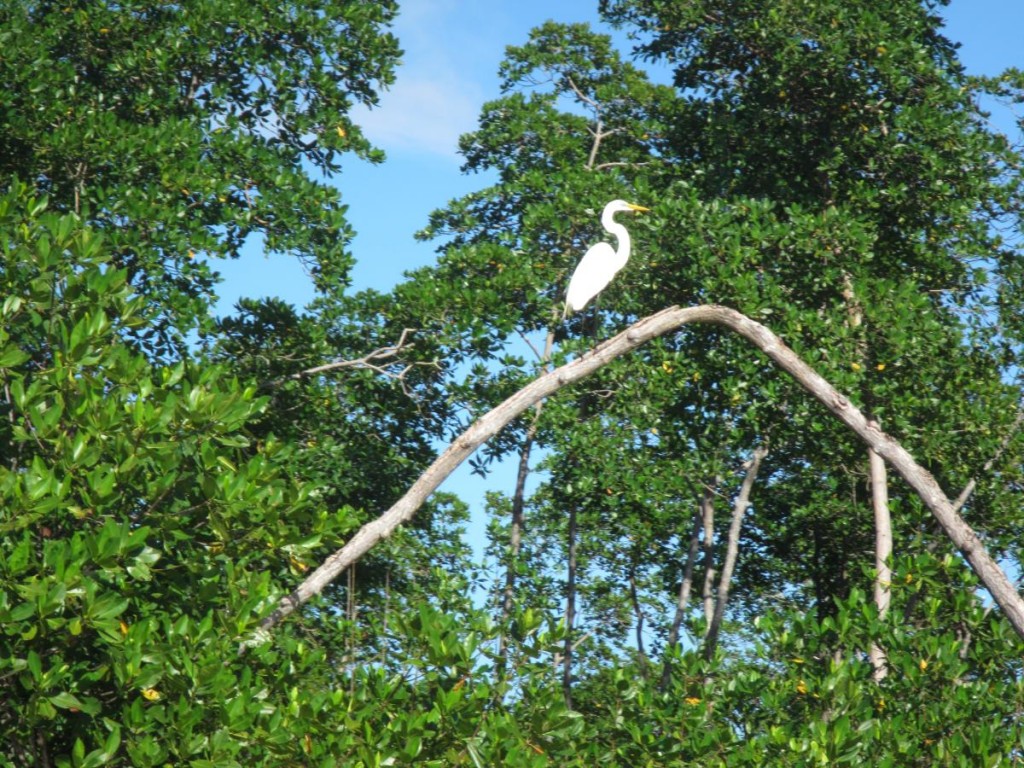
We’re not sure if this is true, but we heard from another tourist that these piles are the remains of a railroad built by Napoleon. They looked very old, but we weren’t able to confirm they were Napoleon’s piles.
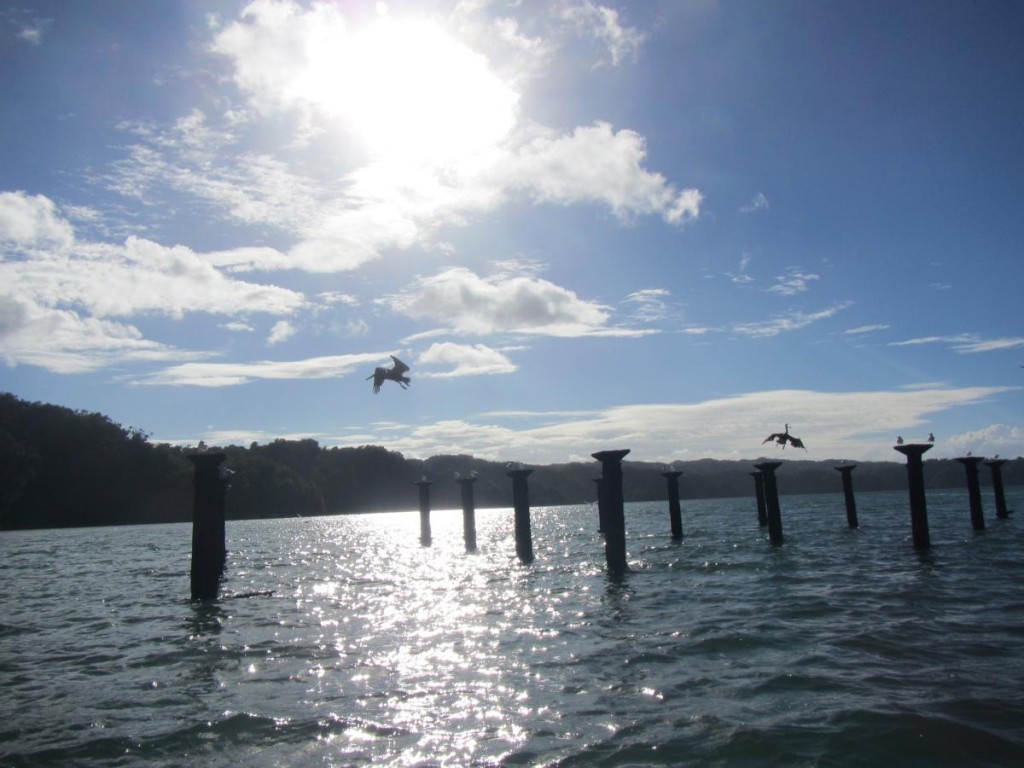
So we’re headed for Puerto Rico tonight. With strong winds and seas pushing through the sixty-mile straight separating the mountainous islands of Hispaniola and Puerto Rico, the Mona passage has a reputation as rough stretch of ocean. The weather seems right, though, and we’ve read the advice from the experts, so tonight’s the night. We’re headed for Mayagüez to clear in, and if all goes well, it should take us about 30-35 hours to get there.
‘Til then…
